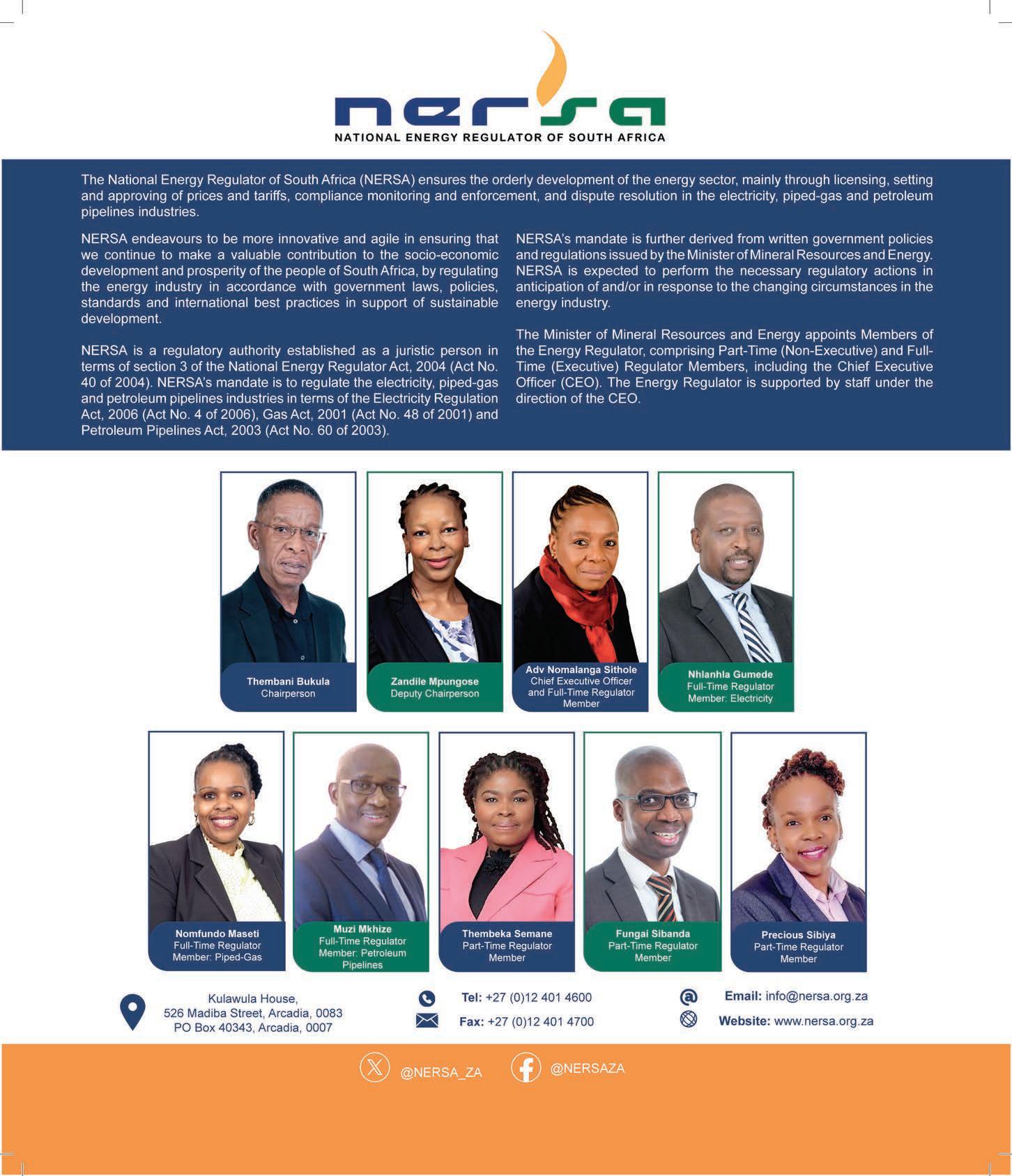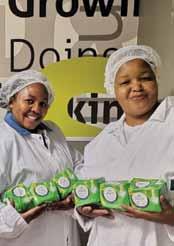
















Nedbank’s approach to transformation centres on purpose-led initiatives that aim to create meaningful and sustainable impact. Transformation is integral to our broader business strategy, The power of ‘N’, as it aligns with our purpose of using fi nancial expertise to do good for individuals, families, businesses and society.
We are deeply committed to driving strategic transformation within the banking sector and playing a pivotal role in advancing economic empowerment and inclusivity. Through various initiatives, including our B-BBEE (Broad-Based Black Economic Empowerment) strategies, enterprise development programmes and targeted investments in under-represented communities, Nedbank is committed to creating opportunities for all South Africans to thrive in the fi nancial sector and globally.
Leveraging ongoing disruptive market activities through sustainable solutions that provide financial support of more than R9.9-billion to new and existing black-owned companies, thereby promoting inclusion and job creation.
Creating a positive impact through a shared-value approach in providing educational opportunities, job creation and sustainable access to the economy for our stakeholders.

Nedbank is dedicated to growing an inclusive economy where communities fl ourish and job opportunities exist. To achieve this, we provide empowerment fi nancing and drive affordable housing initiatives to improve access to financial services for black farmers and support black-owned businesses from the start-up stage through to their growth phase. We also pay particular attention to black-women-owned businesses and black-owned agricultural ventures.
We have also prioritised embedding transformation within our organisational culture to enhance our commitment as a corporate citizen and ensure we are a bank for all, servicing the needs of our changing client base.
We are committed to:
Delivering market-leading solutions through staff, digital and data through increased electronic access to products and affordable housing initiatives.
We are guided by the principle that transformation is much more than compliance with any codes or a tick-box exercise to ensure business meets the minimum compliance standard; instead, it is a moral and business imperative that contributes to a sustainable future for all.
Nedbank’s B-BBEE
Level 1 achievement for the sixth consecutive year is the culmination of some of the following key achievements: Over R1 110-million invested in education and skills development programmes for black people and to empower youth and facilitate their entry into the workforce. Over 2 800 unemployed young people entered the workforce when Nedbank inducted its 2023 cohort into the Youth Employment Service (YES) programme, bringing the number of work experience opportunities created by Nedbank through YES since 2019 to over 10 000.
A 9.82 per cent increase in weighted procurement spend on B-BBEE suppliers and a 47.3 per cent increase in spend with small and medium sized enterprises (SMEs).
Over R26-million invested in strategic partnerships with SMEs, more than R88-million in socioeconomic development and over R26-million in external bursaries.
Banking has been reimagined and digitisation is at the heart of it all. The financial sector is the cornerstone of any economy, supporting resilience and independence for consumers and access to finance at affordable rates for both large and small enterprises. Therefore, how it operates and who has access is fundamentally important for inclusive economic growth. As part of our ongoing commitment to improving access to inclusive fi nancial services, particularly in the low-income market, we have continuously innovated our service offerings. This increased our electronic access from 56 per cent in 2022 to 60 per cent in 2023.
By mobilising transformation, we drive innovation and build trust with our stakeholders, ensuring the inclusive growth the country’s economy needs.


Picasso Headline,
A proud division of Arena Holdings (Pty) Ltd, Hill on Empire, 16 Empire Road (cnr Hillside Road), Parktown, Johannesburg, 2193 PO Box 12500, Mill Street, Cape Town, 8010 www.businessmediamags.co.za
EDITORIAL
Editor, Empowerment: Ryland Fisher
Editor, Sunday Times: S’thembiso Msomi Content Manager: Raina Julies rainaj@picasso.co.za
Contributors: Lorelle Bell, Dr Harlan Cloete, Trevor Crighton, Professor Jonathan Jansen, Vukani Magubane, Itumeleng Mogaki, Busani Moyo, Professor Parmi Natesan, Monde Ndlovu, Thando Pato, Brendon Petersen, Anelisa Tuswa, Anton Visser, Paul Vos
Copy Editor: Brenda Bryden
Content Co-ordinator: Natasha Maneveldt
Digital Editor: Stacey Visser
Head of Design: Jayne Macé-Ferguson
Senior Designer: Mfundo Archie Ndzo
Advert Designer: Bulelwa Sotashe
Cover Image: chekat/istockphoto.com
Project Manager: Jerome van der Merwe jeromem@picasso.co.za +27 21 469 2485 +27 82 668 1496
Sales: Frank Simons
PRODUCTION
Production Editor: Shamiela Brenner
Advertising Co-ordinator: Johan Labuschagne
Subscriptions and Distribution: Fatima Dramat, fatimad@picasso.co.za
Printing: CTP Printers, Cape Town
MANAGEMENT
Management Accountant: Deidre Musha
Business Manager: Lodewyk van der Walt
General Manager, Magazines: Jocelyne Bayer
COPYRIGHT: No portion of this magazine may be reproduced in any form without written consent of the publisher. The publisher is not responsible for unsolicited material. Empowerment is published by Picasso Headline. The opinions expressed are not necessarily those of Picasso Headline. All advertisements/advertorials have been paid for and therefore do not carry any endorsement by the publisher.

4
5
9
12
18
As we celebrate 30 years of democracy and the progess made, we are reminded that the journey is not over and further challenges lie ahead.
Has the ANC delivered on its 1994 promise?
It is everyone’s business to ensure our country’s transformation goals are reached and sustained.
Has the sector transformed enough?
Mainstreaming gender equality in the private sector is still a deferred dream.
Are the Department of Trade, Industry and Competition’s masterplans having a notable impact on industry verticals?
Three ways to maximise the skills development component.
A short supply of critical skills could hamper South Africa’s ability to leverage the powerful combination of demand and investment in business processing and other industries.
Can systemic change strategies help improve inclusivity?

19
We need greater gender parity in South African boardrooms.
23
South Africa still presents a divided school system based on white and middle-class black privilege.
24
Municipalities continue to struggle with governance failure.
27
Bridging the digital divide and driving inclusive growth and development.

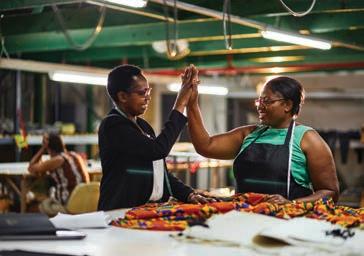
Do sectoral charters aid or cloud BEE?
CIPS comments on South Africa’s Public Procurement Bill.
Helping small start-ups and small businesses grow and succeed.
retrospective look at the ebbs and flows of South Africa’s democracy: pages 4–27.
The past three decades have seen immense change in our country. As a nation, we have fallen and risen in the face of challenges, but continue the journey towards our destination a peaceful, prosperous, powerful democracy. S’THEMBISO
MSOMI, editor of the Sunday Times//Nelson Mandela, the founding president of democratic South Africa, reminds us in his seminal autobiography, Long Walk to Freedom, that in life, after climbing a great hill, one only finds there are many more to climb ahead.
“I have taken a moment here to rest, to steal a view of the glorious vista that surrounds me, to look back on the distance have come,” wrote Mandela. “But can rest only for a moment, for with freedom comes responsibilities, and dare not linger, for my long walk is not ended.”
As South Africa celebrates its 30 th anniversary as a nonracial democracy and a stable economy, we have every reason to use the occasion “to steal a view of the glorious” progress our nation has made.
From a country that was deeply and racially divided by the system of apartheid, a nation that many around the world feared was destined for civil disorder and disintegration, we have built for ourselves a nation united in diversity.
All of the legislation and regulations meant to keep people apart and to divide South Africans into different and unequal categories of citizenship have been repealed and replaced by a Constitution whose progressive Bill of Rights is the envy of many around the world.
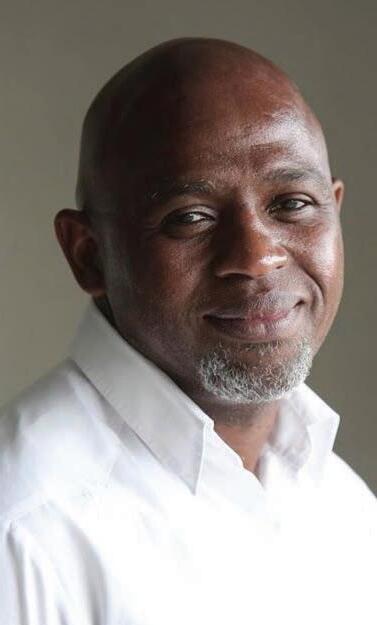
In commerce, education, health, human settlements and many other aspects of our public lives, the past three decades have mostly been a story of remarkable progress.
The past decade has arguably been the toughest in our journey as a young nation.
But, as Mandela warned us, conquering the steep hill that was the 1994 fairly peaceful transition from apartheid to democracy, did not mean that the journey was complete for there were many more to face us as we marched towards becoming a prosperous and stable nation. Some of them so towering that they tempt us to waiver, to lose hope of ever reaching the promised land.
The past decade has arguably been the toughest in our journey as a young nation and has given birth to many doubting Thomases of the democratic project.
In the following pages, we reflect on the journey travelled so far in our relatively short history highlighting both successes and failures and the opportunities and challenges that lie ahead.
Considering how difficult the first 50 years usually are for any country going through transition, it is important that when we reach milestones, such as the 30 th anniversary, we pause a little to reflect on the journey travelled and to appreciate the progress made.
However, as Mandela said, we dare not linger, because the “long walk is not ended”. We look to the past only to draw strength and take in important lessons for the many challenges ahead for this great nation.
From a country that was deeply and racially divided by the system of apartheid, a nation that many around
the world feared was destined for civil disorder and disintegration, we have built for ourselves a nation united in diversity.
The ANC has delivered somewhat on its election promises since 1994, but it might not be enough to convince voters to give it another chance in the next elections,
writes RYLAND FISHER//In its 1994 election manifesto, the African National Congress (ANC), which had just moved from being a liberation movement to a reluctant political party, promised to provide “a better life for all”.
The party stated: “To build a better life for all requires clear goals and a workable plan. Any solution to the crisis of apartheid needs an approach that rises above narrow interests and harnesses all our country`s resources. It requires: democratic society based on equality, nonracialism and nonsexism.
nation built by developing our different cultures, beliefs and languages as a source of our common strength.
An economy which grows through providing jobs, housing and education.
peaceful and secure environment in which people can live without fear.”
Those who are old enough will never be able to forget the exhilarating feeling when we voted in democratic South Africa for the first time in 1994. Thirty years later and the euphoria has evaporated, replaced in many senses by despondency, and sometimes anger and hopelessness, that the end of apartheid and the onset of democracy did not quite deliver to our expectations.
Despite its good intentions, this promise of a better life might have been the ANC’s undoing over the past 30 years it has governed South Africa, all but one of its provinces and most of its municipalities.
You cannot ever improve the lives of all South Africans. To improve the lives of some requires taking from others.
For the past 30 years, the ANC has been performing a fine balancing act between giving and taking and am not talking about corruption here, which is a whole book by itself. am talking about legitimately taking from an increasingly reluctant taxpayer base to improve the lives of an impatient majority who expected more housing, education and, importantly, jobs, and, more recently, social grants.
The ANC, as political analyst Dr Oscar van Heerden pointed out at the recent launch of his new book, Is the Party Over?, has delivered a better life for some, despite a host of challenges, many of its own making.
If one analyses the various presidents since democracy, one can see that each, bar one, has delivered on what was seen as their major objective.
Nelson Mandela was seen as the reconciler he made sure he brought South Africans from different racial and cultural backgrounds together.

Thabo Mbeki was seen as Mr Delivery, and it is no coincidence that the ANC won the highest percentage of votes under Mbeki. People can often not see reconciliation, but they can see the electrification of their homes, having access to fresh water, decent schooling and health services, even though these remain imperfect to this day.
Kgalema Motlanthe only had an eight-month stint as a caretaker, and Jacob Zuma was the one, arguably, who undid much of the good work done under Mandela and Mbeki, from a reconciliation and economic perspective.
Cyril Ramaphosa has had the unenviable job of cleaning up Zuma’s mess, reviving the economy and increasing employment prospects, especially for young people, while trying to pull a recalcitrant ANC leadership along with him on his journey of renewal.
ALL WILL BE REVEALED
National election day, 29 May 2024, will tell if the ANC and our current leadership have done enough to satisfy the electorate. Or, as Dr van Heerden asks in his book title, is the party over for the movement that brought South Africa the freedom we are enjoying today?
Despite its good intentions, this promise of a better life might have been the ANC’s undoing over the past 30 years.

Tuberculosis is a serious public health issue in South Africa but it is curable, writes DR THEMBA HADEBE , clinical executive at Bonitas Medical Fund. He discusses how contagious it is, the symptoms and the importance of getting medical attention and adhering to the treatment regimen.
South Africa has 87 per cent of the estimated tuberculosis (TB) cases worldwide the main driver of infection is HIV, according to the Department of Health (DoH).
South Africa has committed to reducing new TB cases by 80 per cent by 2030, compared with 2015 levels. Clinical data presented by the World Health Organization indicates that our country is meeting some of its targets, but still too many people are falling ill and dying.
TB has a big impact on the economy, not only in terms of healthcare expenses but also lost productivity due to absenteeism. While not everyone has access to private medical care, public healthcare facilities offer free testing and treatment by the DoH.
TB mainly affects the lungs but can also be found in any other organ. It is caused by an organism (germ) called mycobacterium tuberculosis, found in the sputum of someone with TB of the lungs. The organism usually destroys the soft tissue of the lungs, resulting in difficulty breathing and, in severe cases, coughing up blood. Left untreated, TB can cause death.
The disease is passed from one person to another when the germs spread via airborne microscopic droplets from a sneeze, cough or saliva of an infected person. The incubation period is six weeks.
Symptoms include: excessive coughing chest pains loss of appetite and weight low-grade fever
night sweats chills
coughing up blood
In children, the symptoms may present as a cough for two weeks or longer, loss of energy and appetite and often a mild fever.
Those most at risk of contracting TB include: people living with HIV/AIDS those living in the same house as someone with TB anyone who has had active TB in the last two years diabetics
residents of informal settlements children under five alcoholics and smokers mineworkers prisoners pregnant women
TB can be “latent”, in other words, it’s in your body but not active and therefore you cannot spread it. However, if your immune system becomes weak, the TB can become active and you become ill.
Diagnosis of TB is quite complex since many symptoms can be similar to those of other common lung diseases. South Africa has moved towards more intensive and active methods of identifying cases, for example, by screening all those attending primary health clinics. TB testing and treatment is free. TB is treatable. However, medication must be started as soon as possible and it must be taken regularly as per the instructions. TB patients must stick to the treatment regimen. It takes six months for TB to be cured completely but within two weeks of starting treatment, it is no longer infectious.
Complete the treatment
Cover your mouth and nose when coughing or sneezing
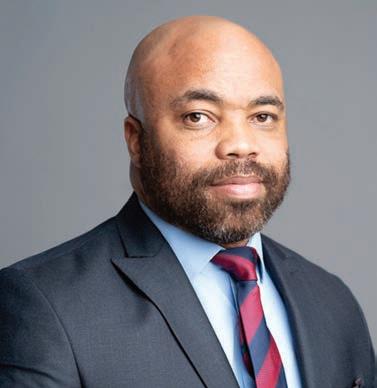
Themba Hadebe
Wash hands with soap and water
Immunise all babies within one year of birth
Stay healthy
Stop smoking
Open the windows if you are living with someone with TB fresh air blows the TB germs away and sunshine kills the TB germs
If any employees display TB symptoms, they should stay home and limit contact with others as much as possible until the results from a TB test are known. They can return to work after two weeks of treatment



For more information: www.bonitas.co.za
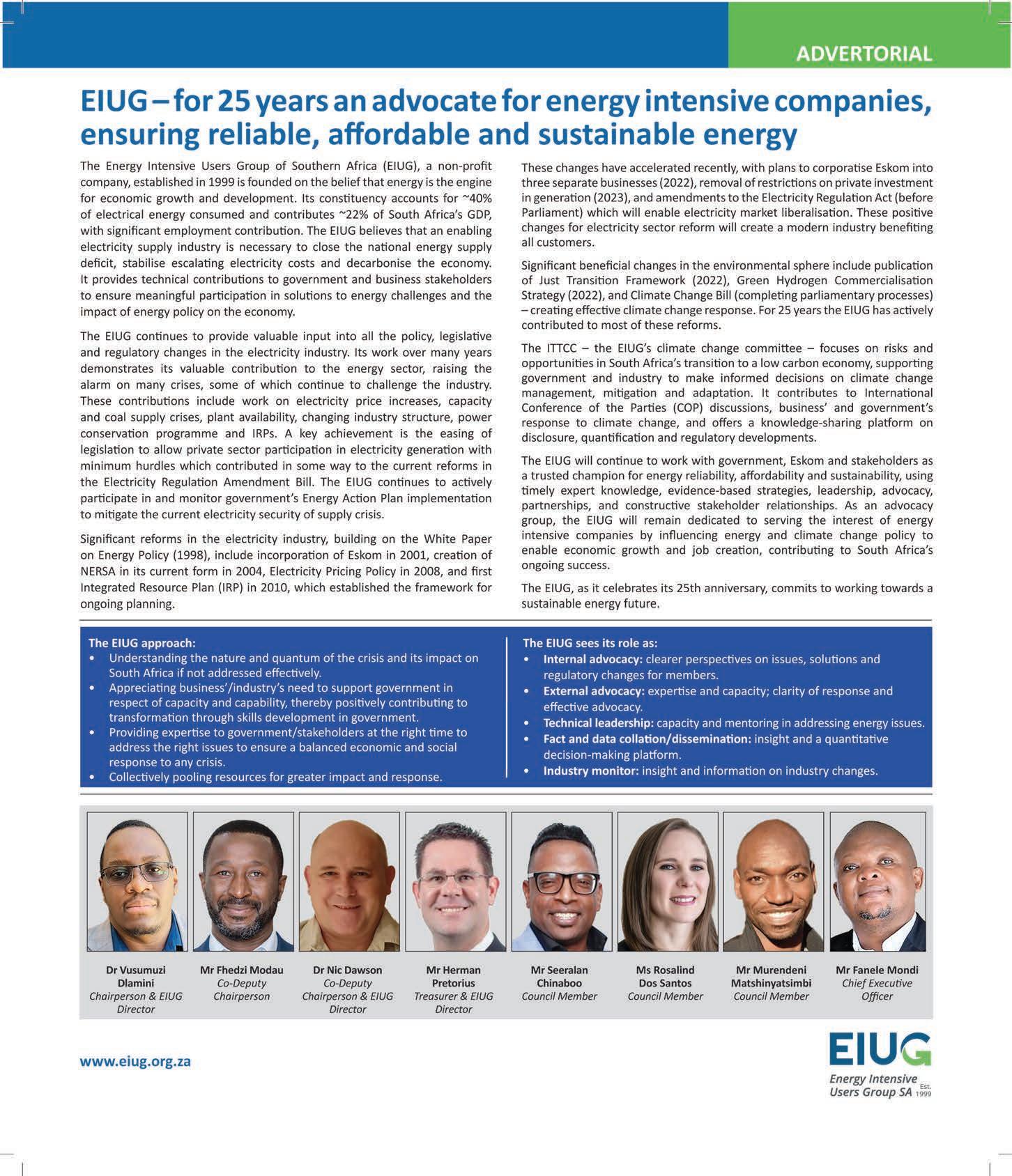
After 30 years of democracy, some areas of transformation remain a concern. We all have a responsibility to ensure the socioeconomic transformation of our society, argues MONDE NDLOVU, managing director of the Black Management Forum
//We are in a reflective period in the country’s history and all stakeholders in society must assess their performance against the broader mandate to transform our country. The all-inclusive phrase in the Constitution, “We the people of South Africa”, needs to be reignited through honest and open dialogue about the gains of democracy and its glaring challenges. South Africa is in a phase of unfinished business.
The business of society is to sustain freedom, the business of the public sector is service delivery, the business of business is shareholder value creation, but the business of the heart is socioeconomic transformation. In other words, since the heart is the centre of socioeconomic transformation, it remains everyone’s business to ensure that our country’s transformation goals are reached and sustained.
The dawn of democracy in 1994 ushered in new conditions for transformation to flourish and thrive 1994 was the beginning, not the end. Now, 30 years on, we need to highlight the areas of concern where business is unfinished.
The first area of great concern is the role of black professional bodies and how they plan to influence the transformation landscape in the next 30 years. One does not see a clear commitment to review the impact and planned action among all of them. We exist in our own corners without deepening our efforts and strengthening our voice regarding transformation issues in the country. This is unfinished business.
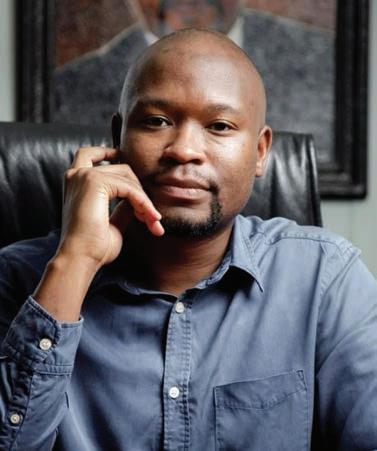
The second area is how the corridors of power in the economy have not accepted and given space to black leaders to operate at a C-suite level. The numbers reported yearly at C-suite level remain docile without much improvement. Both African men and women are below 20 per cent in representation this is not acceptable in a democratic dispensation that seeks to overhaul societal challenges. Training and development, promotion and recruitment remain skewed towards whites and Indians, reflecting that the private sector has not embraced transformation. Adjacent to this, companies budget for penalties and we have normalised this behaviour. This is unfinished business.
The dawn of democracy in 1994 ushered in new conditions for transformation to flourish and thrive – 1994 was the beginning, not the end. Now, 30 years on, we need to highlight the areas of concern where business is unfinished.
The business of society is to sustain freedom, the business of the public sector is service delivery, the business of business is shareholder value creation, but the business of the heart is socioeconomic transformation.
The third is how listed companies that influence the economy drive a new wave of ownership transactions and recalibrate enterprise and supplier development (ESD). Transactions need to be structured and achievement of 50 per cent plus one, especially in the financial services sector, must be reviewed urgently. Enterprise development needs a greater focus on developing black businesses in economic sectors that drive the economy. We must develop black-owned financial services companies this is the new lens through which we should see some of these matters. Skills development will naturally follow the key economic drivers of the country and future economic drivers, aligned to the ESD understanding, briefly unpacked. This is unfinished business.
The fourth matter is the need to drive a new value system in the country, premised on our collective agenda, which is not quite understood, through the ubuntu philosophy. Ubuntu must live and breathe through every decision affecting stakeholders, including society, made in the boardroom. We need to further develop an ubuntu-centred business lens, underpinned by justice, equity and fairness. This new approach to management and leadership must be present in all the layers, from the board, management and staff to organisational policies and procedures and legitimate decision-making processes.
These matters are just the surface of the transformational work we all still need to achieve. Our triple challenges unemployment, inequality and poverty are a constant reminder that transformation is not a cosmetic and organic process, but a substantive, deep and inorganic process that needs continuous sacrifice from all of us.
We acknowledge the monumental gains we have made, yet our dream of a country at peace with itself and its people remains unrealised, but we must continue the hard work if we want our beautiful country to become what OR Tambo, Robert Sobukwe, Steve Biko and Nelson Mandela intended, and what we all intend.
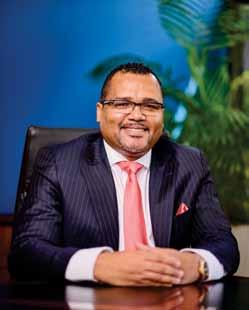






One of the key metrics to a successful democracy is an inclusive economy. THANDO PATO examines the legislation and programmes introduced to democratise South Africa’s nancial sector
//The financial sector plays a critical role in South Africa’s economy. According to Statista, in 2023, the financial sector contributed approximately R1.03-trillion to South Africa’s gross domestic product. To introduce transformation and allow for participation for all in the sector, the Financial Services Code (FSC) underpinning Broad-based Economic Empowerment (B-BBEE) was introduced in 2004.
The FSC scorecard targets for industries in the sector include:
Human resources development. Access to financial services.
Empowerment financing.
Procurement and enterprise development. Corporate social investment.
Ownership.
Management control.
Since the FSC’s introduction, the sector has made great strides, says Pumla Ncapayi, CEO of the Financial Services Transformation
Council, even though some of the key targets outlined have not been met since being introduced 20 years ago.
“Overall, the FSC scorecard targets are still not being met by the sector. Yes, there are noticeable achievements by some industries within the sector on some elements. However, elements that are of great concern across the board are management control and skills development, which is where none of the industries within the sector are meeting any of the scorecard targets,” she explains.
Some of the notable achievements in the sector Ncapayi is referring to include an increase in black ownership from 16 per cent in 2005 to 28 per cent in 2020/2021.
In addition, in February 2022, Capitec announced it would issue R1-billion in new shares for purchase by qualifying permanent employees from previously disadvantaged backgrounds. The following year, Absa announced a R10-billion B-BBEE transaction that will benefit black South Africans and
employees. Both these transactions will impact the ownership score in the sector in the future, says the Banking Association of South Africa’s 2023 Transformation Report. Other signifi cant targets that have been achieved are the increase in empowerment financing a funding initiative targeted at small, medium and micro enterprises from R80-billion in 2005 to R123-billion in 2020/2021, exceeding its R122-billion target.
The debate about transformation and the limited opportunities given to women to lead organisations in South Africa, despite Employment Equity and B-BBEE legislation, affects all sectors of the economy, including finance. According to Ncapayi, the results of the Financial Sector’s 2020 and 2021 State of Transformation Annual Report showed that at the board and senior management levels, the sector is still falling short of its transformation targets.
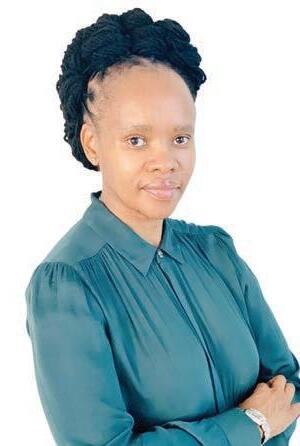

The report reveals that:
Only 39 per cent of boards are made up of black executives.
Only 37 per cent of people in senior management teams are black.
Only 19 per cent of directors are black women.
Only 37 per cent of black women are in senior management roles.
“Further efforts are required to achieve effective management control to ensure the active participation of black and black female executive directors in decision-making processes at board level and in senior management,” says Ncapayi.
The Banking Association South Africa’s 2023 Transformation Report for the year 2021 showed that the inclusion of back women at board and senior management levels in the banking sector was one of the leading industries in the sector.
The target for black women directors was 25 per cent, but only 23 per cent was achieved.
The percentage of black women in senior management increased by 6 per cent to 21 per cent.
Regarding the challenges around skills development in the financial sector, Ncapayi says that while there has been growth in the allocation of resources towards educational initiatives for people with disabilities and more learnership, apprenticeship and internship opportunities open to the public, there has been a decrease in the retention of these individuals when the programmes are complete.
Qualified accountants are the key role players in the financial management and auditing sector in the public and private sectors. The South African Institute of Professional Accountants estimates that South Africa has a shortage of more than 20 000 skilled accounting professionals.
The State of Accounting Firms Trends Report for 2023 revealed that over 90 per cent of accountants and 95 per cent of auditors find recruiting skilled talent difficult. The study was conducted among 4 100 accountants and 2 300 auditors.
The most sought-after skill set in the accounting profession is that of a chartered accountant, CA(SA). Since 2002, the South African Institute of Chartered Accountants (SAICA), through its Thuthuka bursary fund, has been promoting transformation in the chartered accounting sector by supporting prospective black and coloured students from basic education to qualifying level.
“The Thuthuka Bursary programme operates under the Thuthuka Education Upliftment Fund Board, and its primary activity is assisting financially deserving African and coloured students to become CAs(SA). Learners and students who come from families with a combined household income of R350 000 or less per annum can apply for the Thuthuka bursary,” says Gugu Makhanya, executive: funding and transformational projects.
“For the chartered accountancy profession, these initiatives ensure that the economy has a consistent flow of adequately and suitably qualified accounting professionals who are representative of the country’s demographics.”
There are currently 53 394 qualified CAs(SA), 9 652 are black and 2 426 are coloured.
“The biggest challenge at the beginning of the pipeline is the low pass rates in mathematics at the Grade 12 level,” Makhanya explains. “Many learners struggle with this critical subject, which is a gateway to accounting and other
high-demand professions. A recurring challenge remains the pass rates of accounting students at third-year and postgraduate diploma level.”
She says another barrier to entry is funding, particularly at the postgraduate level. “Not all historically disadvantaged institutions offer accredited postgraduate programmes in accounting, further limiting access for some students. To combat this, SAICA has collaborated with Standard Bank to transform the lives of students from previously disadvantaged backgrounds.”
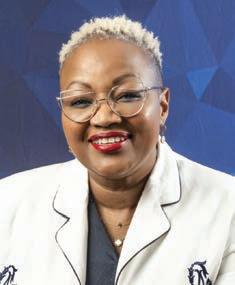
The initiative seems to be bearing fruit, as SAICA announced recently that of the 1 726 candidates who passed their first two SAICA board exams, 1 073 were black (African, coloured or Indian). The candidates are now one board exam away from attaining their CA(SA) designation.
SAICA also offers two other professional accounting and business designations the accounting technician and associate general accountant.
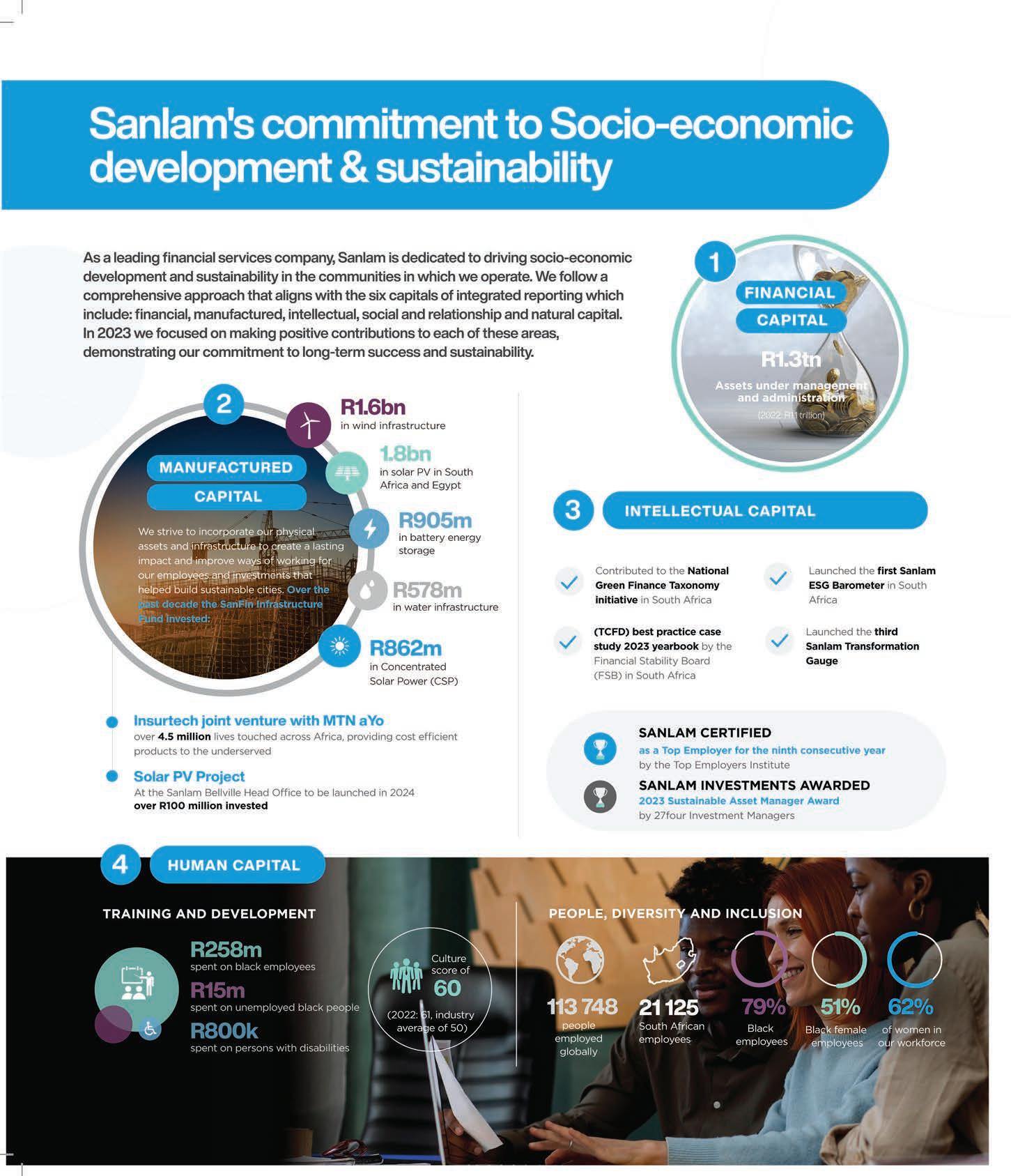
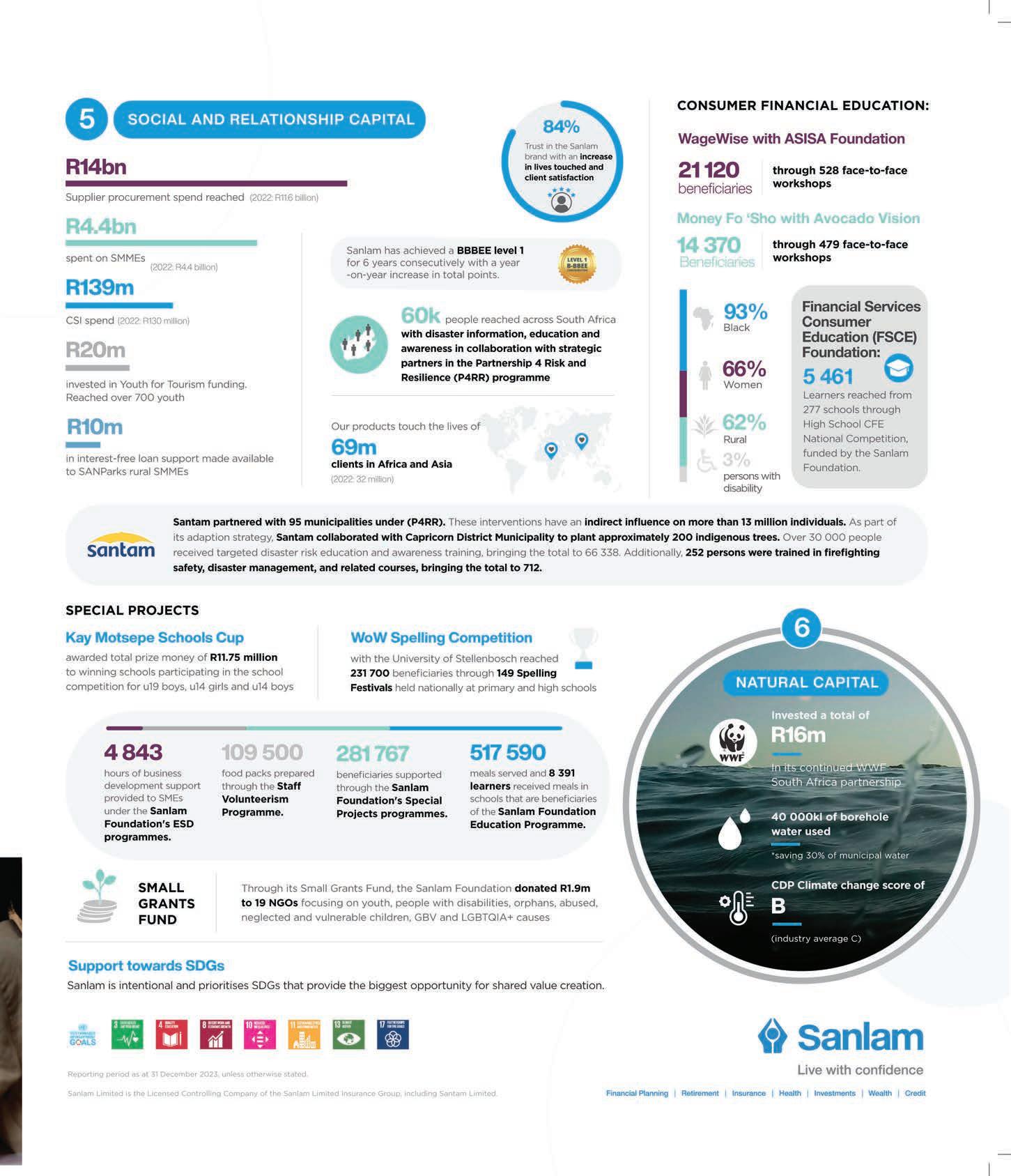

RYLAND FISHER chats to Sea Harvest’s CEO, Felix Ratheb, about the company’s 15-year journey of change
Felix Ratheb joined Sea Harvest in 2003 and became CEO in 2013.
Over the past 11 years, he has seen the company grow from a market perspective, including its listing on the Johannesburg Stock Exchange (JSE). The company is 95 per cent black-owned and a Level 1 contributor in terms of government’s broad-based black economic contributor scorecard.
While Sea Harvest is a capital-intensive business, Ratheb believes that it is, first and foremost, a people business.
“It starts with having shareholders who believe in and support you to having management who support your values. Then you need workers who believe and trust in you to navigate the bad times and who expect to benefit from the wealth created in good times,” he said in an interview at the company’s head office in Woodstock, Cape Town.
Ratheb says Sea Harvest’s transformation effectively began when it lost 14 per cent of its fishing rights in 2005. At the time, most of the
company’s skippers were Spanish, and most of its chief engineers Polish and Eastern European.
“Due to the loss of fish from the 2005 Fishing Rights Application Process, we spent the next two years barely breaking even.
This was a big wake-up call we realised we could not continue operating our business the way we had done in the past. We looked at what transformation meant and analysed our business against government’s empowerment agenda, factoring in not only our employees on the factory floor, but also our ownership structure, senior management, suppliers and corporate social investment funding criteria.”
The opportunity to change came in 2008 when management and then-minority shareholder, Brimstone Investment Corporation Limited (Brimstone), bought out the major shareholder, Tiger Brands. Brimstone, a black investment company that grew out of the Cape Flats, was already listed on the JSE at the time. The new shareholders, under the leadership of Sea Harvest’s new board chairperson, Fred Robertson, believed
in transformation and ensured its priority within the business.
Just over 15 years later, the company looks very different to what it did in 2008. Sea Harvest’s fishing crews are all South African. Many of the people in senior management who joined the company 15 or 20 years ago have been promoted to management or supervisory positions, resulting in about 70 per cent of the senior management being previously disadvantaged individuals. Significant changes have also taken place in the leadership team.
A key strategy was identifying and fast-tracking the development of high-performing employees, which helped Sea Harvest grow its talent pipeline from within the business. Employees were nurtured through training and skills development, mentorship programmes and skills transfer. Although Ratheb acknowledges that more can be done to transform the workforce, he explains that there is a need to balance
retaining existing skills and securing highly skilled individuals with developing new talent to remain globally competitive.
The company is one of the largest employers in Saldanha on the West Coast. Although it creates direct employment for approximately 2 000 people in Saldanha, based on the multiplier effect, it contributes to the economic wellbeing of 5 000–6 000 families. It has assumed a greater responsibility for the town, becoming involved, to a certain extent, in the overall welfare of its employees.
“We have invested millions of rands in numerous projects over the past decades, including building a Grade R school and renting a satellite office for the Department of Social Development so the local community don’t have to travel to another town to receive support when dealing with the various social ills prevalent in the town.
“Opening the school for the children of the women who work in our factory was one of my proudest moments. Our staff had complained about classroom overcrowding and that the local schools could not cater for the number of learners applying for enrolment. We worked with the Western Cape Education Department on a building project and handed the school to them on completion,” explains Ratheb.
When it comes to suppliers, about 80 per cent of Sea Harvest’s spend is on black suppliers. Instead of creating go-betweens, the company has worked with its suppliers to build sustainable, independently operated businesses. “We have focused on affi rmative procurement and enterprise development, mentoring and offering loans with favourable terms to ensure they have working capital. Doing a few simple things, such as paying our suppliers and service providers sooner, makes a big difference in their lives,” adds Ratheb.
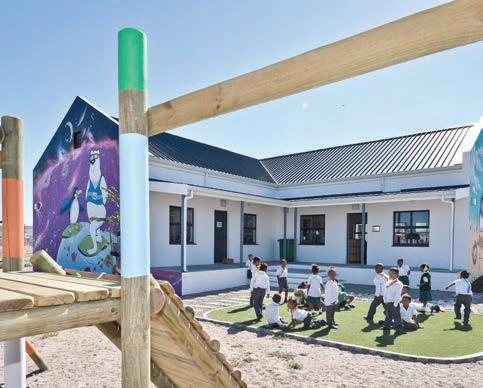
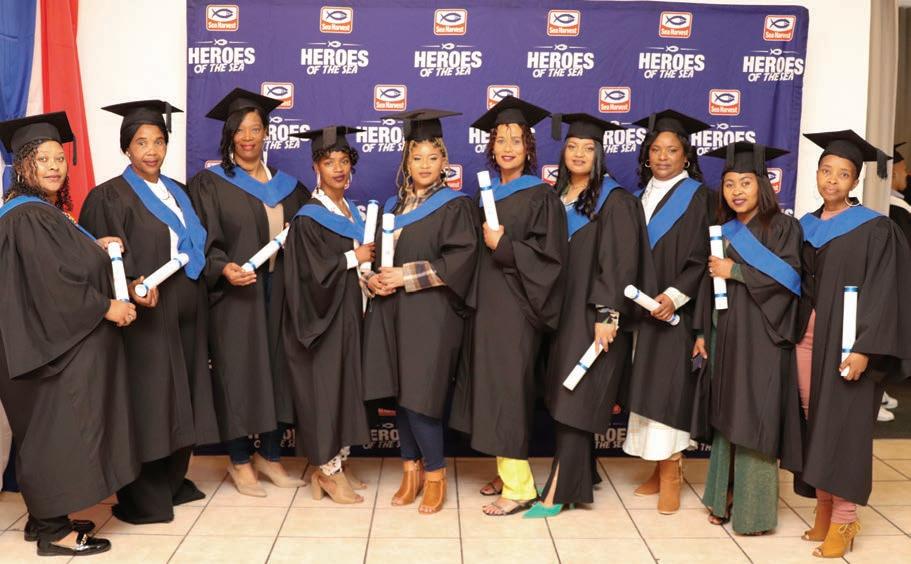
Sea Harvest’s view on transformation is that it should be about uplifting the poor. As a result, another success in the company’s transformation journey was giving staff ownership in the business in 2015 through an Employee Share Trust. Given that Sea Harvest had more than 3 000 employees, it effectively meant that 3 000 families owned a share of the business through the Trust until 2022 when they all received dividends and capital payouts for their shares. Ratheb asserts: “This was done to ensure there was a liquidity event for staff.
“If you talk black economic empowerment, it needs to be broad-based, therefore if you are giving your company to your employees, they are putting their children through university. Fortunately, believe in that as do my shareholders and our management. We do not transform because the unions or government force us to do so, but because it is the right thing to do,” explains Ratheb.
In recent years, Sea Harvest has invested in several other companies outside of fi shing. “We have a recipe we can take to other companies to ensure they also transform. We began by replicating what we did in fi shing and assisted them to get involved in their local communities, but the most important thing is getting management buy-in. think we have done well,” he declares.
He adds: “We have to accept that apartheid was bad and that there is still plenty of inequality in our society. The best way to deal with this is by creating jobs we do this by growing our business. We need to create learnerships and upskill people so they can have permanent jobs. Leaders need to see this and support transformation because if they don’t, they will soon run out of skilled people.”
Ratheb says the skills shortage in the fishing industry internationally is widely acknowledged and has impacted Sea Harvest’s business. Young people seemingly do not want to go to sea to fish for long periods at a time anymore. This extends to not just fishermen, but also boilermakers, fitters and mechanics, skills that are vital in the operation of a factory or fleet.
“Through our empowerment initiatives, we have endeavoured to build a society where there is a more equal distribution of wealth. We cannot thrive as a nation if the poor keep getting poorer, while the rich get richer. believe that by doing the right thing in helping government achieve its transformation objectives, Sea Harvest has been able to secure its future in South Africa,” concludes Ratheb.





As South Africa marks 30 years of democracy, mainstreaming gender equality in the private sector remains a top priority and a dream deferred. Why are women still generally on the margins in the workplace when it comes to gender parity and inclusion, asks VUKANI MAGUBANE
//While there has been positive forward momentum and improvements in supporting gender equality, much work still needs to be done to achieve more meaningful representation by women at work.
A leading expert on gender equality and the mainstreaming of women in the workplace believes that men and women must mainstream the conversations about gender equality using business cases as a basis for transformation and to inspire diversity because it makes business sense.
“When you mainstream gender in the workplace women will rise to the occasion,” says Colleen Larsen, chief executive of Business Engage and founder of the Gender Mainstreaming Awards. “Men should be part of the conversation. Both men and women must have a seat at the table, and we must drive it from a people perspective.”




In the 2023 World Economic Forum Global Gender Gap rankings, South Africa was ranked 20 th out of 146 countries. According to Statistics SA, the country’s labour market “remains more favourable to men than women, revealing large gender gaps in employment.”
South Africa is not alone. Disparity remains a huge challenge globally. Women and young people lag in fi nding meaningful work and bear the brunt of inequalities in the labour market.
“Men and women must mainstream the conversations about gender equality using business cases as a basis for transformation and to inspire diversity because it makes business sense.” – Colleen Larsen
South Africa’s labour force participation for women is 54.3 per cent compared to 64.9 per cent for men, a gap of 10.6 per cent, according to the latest Statistics SA figures.
This is despite South Africa having several policies and guidelines to support gender equality in the workplace. The Constitution and the Employment Equity Act No 55 aim to promote women’s participation in the private and public sectors. The JSE requires listed companies to have a policy on gender and report on gender representation to their stakeholders.
Larsen, a leading voice for sustainable advancement of gender mainstreaming, is optimistic that mainstreaming the conversation on gender will result in sustainable progress in gender parity in the workplace.
“Business Engage is interested in trends and what is happening over several years. Are we moving forward or backwards? How do people come to the table? How do we mainstream the conversation? It is not about men out and women in. The more we make it a woman’s issue the more we marginalise women. If you mainstream gender, companies will be inspired, not because of legislation or chasing numbers,” she explains.
Larsen believes that grouping issues related to women as an isolated issue outside of mainstream discussions on strategy or talent management is a disservice to 50 per cent of an organisation’s workforce and does not make strategic business sense.
“Mainstreaming makes it part of an organisation’s DNA,” she says. “Understanding must come from the top. It is strategic and not the flavour of the month. It must be part of the DNA driving leadership and talent (management). The conversation must be about talent broadly and be driven by the board and CEO. Everyone must understand their role.”
Larsen believes firmly that how we talk about mainstreaming women matters. Gender mainstreaming is a strategy for integrating a gender equality perspective into all policies and programmes of an institution.
“We are very particular about our messaging. Women’s empowerment goes to the negative. Issues packaged as women’s issues paint a negative perception of women,” she says. The trend is that more companies are putting more weight behind gender mainstreaming. We must do it methodically, consistently and deliberately to move forward for sustainable change.”
PROFESSOR PARMI NATESAN, CEO of the Institute of Directors in South Africa, writes that it’s time to take the number of women in South Africa’s boardrooms to the next level
//At the historic opening of the 1994 parliament, Nelson Mandela linked freedom with the emancipation of women. However, turning the promises of the new dispensation into reality continues to be, as they say, “a process”.
A large and growing body of literature underpins the notion that greater female representation in companies goes beyond fairness; it delivers better outcomes better decisions and financial results. It follows that ensuring improved female representation on boards is desirable on business grounds.
While credible statistics of the number of women on the boards of JSE-listed companies in 1994 are difficult to find, it’s a safe bet to say it was extremely low. By 2005, women held 11.5 per cent of the directorships of companies on the main board of the JSE, 3.7 per cent as executive directors and 7.8 per cent as nonexecutives. Just over 43 per cent of South African companies had no female directors at all, according to research conducted on behalf of the Businesswomen’s Association of South Africa and quoted in Dudu Msomi’s “Factors affecting women representation on boards of directors”, GIBS MBA research report (2006).

By 2023, according to PWC’s Non-executive Directors: Practices and Fees Trends Report 38 per cent of the JSE Top 100 had female nonexecutive directors (41 per cent if chairs are excluded) and 14 per cent of board chairs were women.
These figures show considerable progress. What drove this change? Although the country set no legislative quotas for females on boards, a key factor was a supportive framework of legislation, notably the Employment Equity Act and the Broad-Based Black Economic Empowerment Act and its codes of good practice, both of which highlight gender as one of the criteria for achieving empowerment. At the same time, though, given this country’s history, racial empowerment has tended to overshadow gender empowerment to a certain degree, although it has created a certain “forward momentum” from which females have benefi tted.
At the heart of the argument for greater female representation on boards is the view that diversity is vital in helping organisations understand the trends and how to take advantage of them.
Non-executive Directors: Practices and Fees Trends Report
DOW NLOAD

The JSE’s regulations and the groundbreaking King Reports on Corporate Governance have also played a role. Overall, one must not underestimate the impact of the sweeping changes in society over the past 30 years, during which long-held social norms have been overturned or at least recalibrated.
At the heart of the argument for greater female representation on boards is the view that diversity is vital in helping organisations understand the trends and how to take advantage of them. As noted above, there is empirical evidence that this is the case. For this reason, King IV explicitly links ethical and effective leadership with the composition of the governing body the idea being that the more diverse a board is, the less likely it is to fall into the trap of groupthink.
However, we also must recognise the danger of what one could call the “tick-box mentality”. In this case, the assumption is that the more women or people of colour a board has, the more likely it is to benefit from a wide range of views.
This seems to make sense, but it is not necessarily so. As the Barington Capital Group argued in a 2020 paper for the Harvard Law School Forum on Corporate Governance, cognitive or experiential diversity is not necessarily a function of demographic diversity. This will become truer as South African society gradually becomes less fragmented.
We need further progress towards greater gender parity on boards, not least because it seems that female board representation needs to reach critical mass to spark a fundamental change and enhance corporate governance. We have come far, but there is more to do.
discuss transformation at the South African Medical Research Council
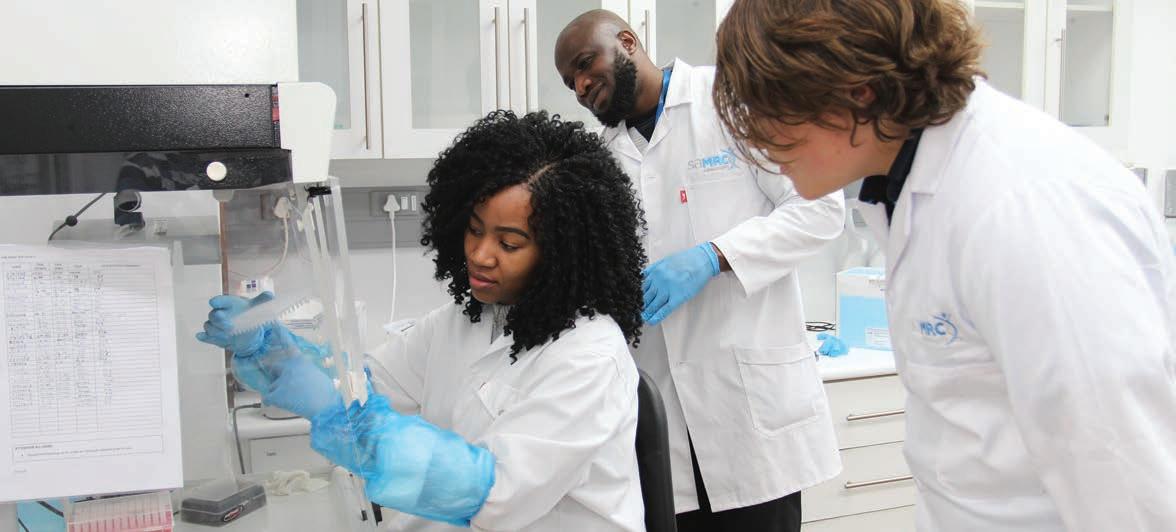
The establishment of the South African Medical Research Council (SAMRC) in 1969 coincided with the heart of South Africa’s apartheid era, when a national legislative framework impelled organisations to entrench exclusion and inequity. Along with a majority of state and private institutions, the SAMRC was managed by and directed to the advantage of the white minority population. Thus, for years after its founding, the SAMRC board was exclusively white and male, with a black man and a woman appointed only two decades later.
The SAMRC’s first annual report shows that the most significant health challenges of the poor majority received relatively little attention in the research focus areas of the SAMRC. Pneumonia, for example, associated with indoor residential use of highly polluting fuels, such as coal and wood (in the absence of electricity supplies), was not a major SAMRC research focus area, nor was the burden of child mortality from diarrhoea,
associated with inadequate access to water and the use of communal or bucket toilets. Racially discriminatory policies were also applied to training in the health sector. For example, during the apartheid era, only three institutions Medunsa (currently the Health Science Faculty of the University of Limpopo), Unitra (Walter Sisulu University) and the University of Natal trained black African doctors, as reported in a 2013 paper, “Analysing post-apartheid gender and racial transformation in medical education in a South African province”. In general, relatively low levels of funding were directed towards tertiary educational institutions designated for the training of back health personnel, including in the research field.
Significant inequity was still prevalent in the SAMRC’s workforce and its health research funding mechanisms when Professor Glenda Gray became president and CEO in 2013. At
the start of her term, a transformation plan was developed with the focus, particularly, on increasing diversity within the organisation and the recipients of its research grants, scholarships and extramural research units to ensure equitable opportunities for everyone to have a fair chance to take a seat at the table.
The Transformation Plan outlined key actions to increase diversity, including:
The Human Resources department to provide each unit/division embarking on a recruitment process with a breakdown of the unit or division-specific demographic profile and recruitment targets.
Motivations are required when an out-of-target appointment is requested.
The Executive Management Committee to scrutinise appointments of senior management personnel.
Transformation is considered in the performance reviews of senior staff.
Transformation reports submitted monthly to the SAMRC Executive Management Committee and quarterly to the SAMRC board.
These and other actions were highly impactful, contributing to signifi cant advances in transformation at the SAMRC.
For example, from 2014 to 2024, the percentage of research grant funding awarded to black African health scientists increased from 30 to 63 per cent, while the proportion of black Africans receiving SAMRC scholarships rose from 39 to 72 per cent. Also increased was the proportion of black directors of SAMRC Extramural Research Units and the number of research units established at historically disadvantaged institutions.
The main concern on our outstanding diversity agenda is the development and nurturing of black independent investigators to assume scientifi c leadership positions within the organisation and country more broadly. To address this we are developing a multifaceted and innovative programme of capacity development interventions.
The South African Medical Research Council (SAMRC) is committed to improving the health of people in South Africa through research, innovation, development and technology transfer. The scope of research includes laboratory investigations, clinical research and public health studies. We focus, in particular, on South Africa’s burden of disease: maternal, newborn and child health, HIV/AIDS and TB, noncommunicable diseases and interpersonal violence. Our work involves the acquisition of evidence-based information to inform health policy and practice and improve the quality and health status of people in South Africa. We are also the largest local funder of health research, medical diagnostics, medical devices and therapeutics. We pioneer cutting-edge medical innovations, focusing on genomic research, the development of novel treatment regimens, vaccine development, diagnostic tools and developing new drugs and devices.
In promoting diversity at the SAMRC, our predominant focus has been on institutional systems, procedures and practices, ensuring fairness prevailed throughout the system.
As we are increasingly meeting our diversity targets, our focus is shifting toward the creation of accessible and inclusive spaces across our campuses. Fostering inclusion has required a paradigm shift and new approaches from institution-wide systems to promote diversity towards deeper and more personally directed interventions to promote inclusion. In 2022, we embarked on a programme of study, training and ongoing consultation of our employee community to inform the draft of a revised SAMRC Transformation Plan, which focused on diversity and inclusion.
Based on what we learned, we devised a broad package of interventions to be implemented flexibly across our organisation to respond to the needs of teams and individuals.
One of our first actions was to craft a “History and Health statement”, in which we acknowledged the role of apartheid in the prevailing distributions of ill health in South Africa and the silence of the SAMRC during apartheid about health inequities.
Given the growing evidence of the critical role self-awareness and self-leadership play in fl ourishing, productivity and leadership capacity development, we are investing in self-awareness interventions for our employees and teams, including life and leadership coaching and the identification of personality type and personal strengths, triggers and behaviours. We are also paying attention to concerns, such as prejudice and unconscious bias, our culture and values, the implementation of campaigns to promote greeting, appreciation and kindness, and improving our campus environments to promote accessibility for people with disabilities, among others.
During the COVID-19 pandemic, the SAMRC displayed high levels of agility and innovation in its response to the pandemic, including designing and implementing critical interventions, such as the Sisonke Trial, which saw the life-saving vaccination of hundreds of thousands of South African health workers, and the formation of a wastewater-based surveillance system to alert health and local authorities of rising levels of COVID-19.
In addition to the prospect of further pandemics, all South African organisations face a future that appears to be increasingly volatile and complex, including the extreme and disruptive weather consequences of a changing climate, deterioration of infrastructure to provide the most fundamental pillars of public health (such as electricity, safe water supplies, solid waste management and wastewater treatment) and an uncertain political climate. Organisations such as the SAMRC will need to build their capacities for resilience/pro-silence, curiosity, creativity, prudence and social intelligence. We anticipate that the SAMRC’s transformation agenda will need to be ever-evolving in response to the prevailing external factors, our moral obligation to work towards equity and justice and ensure that our people and organisation can fl ourish and reach their full potential in life.



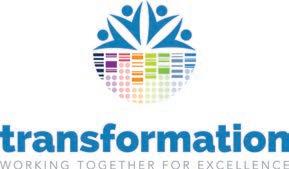
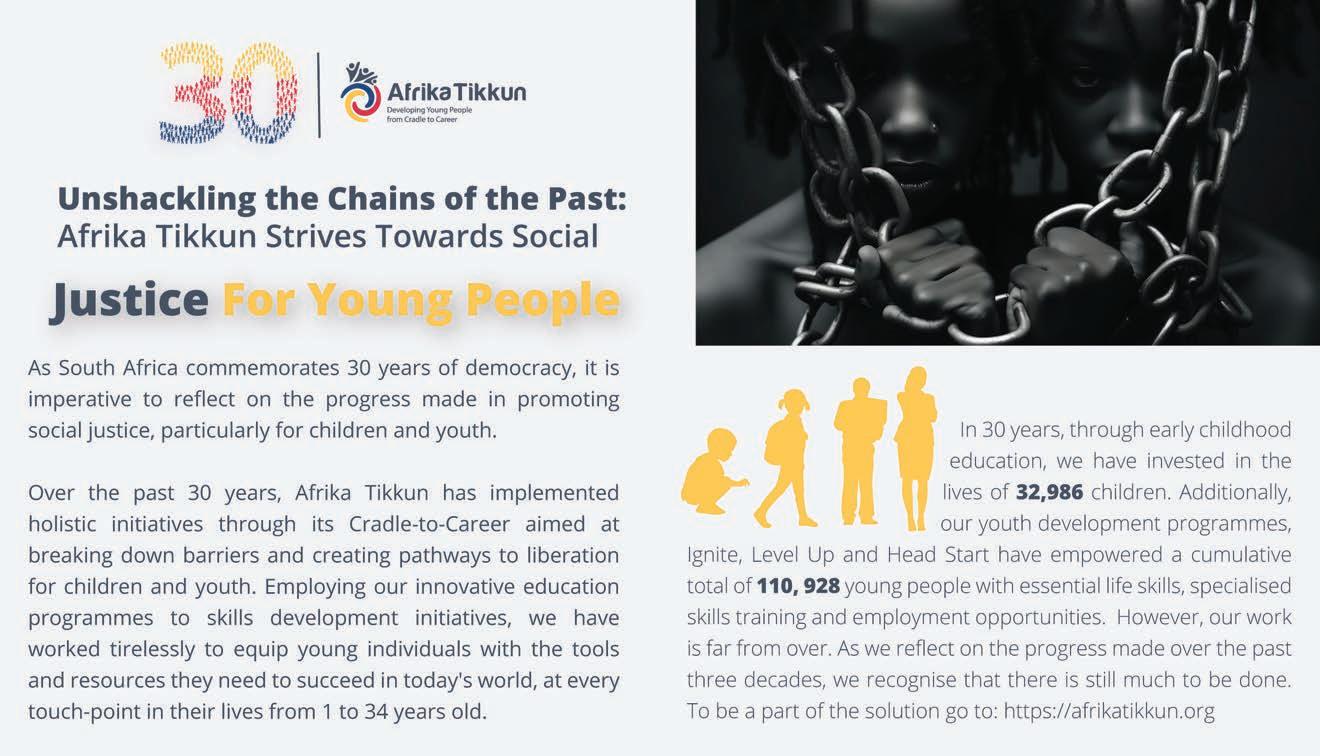
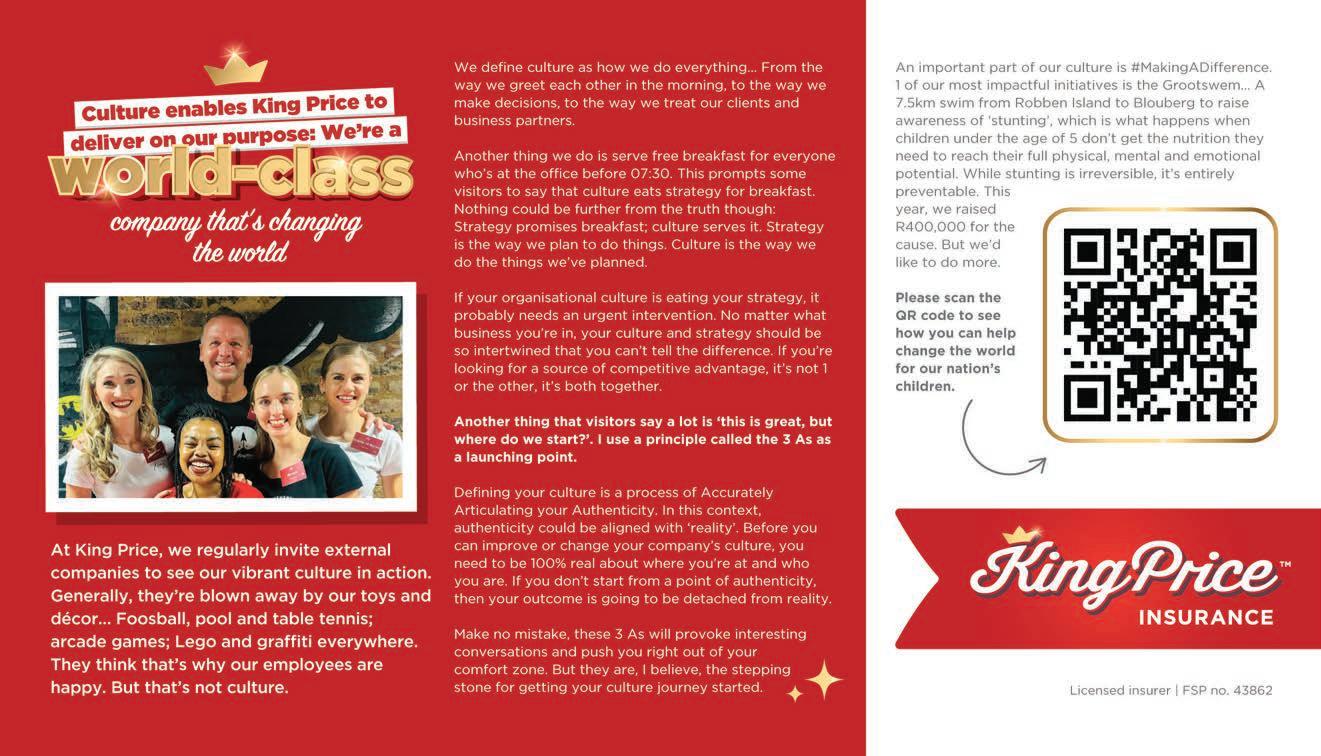
Our schooling system is still based on white and middle-class black privilege, with the majority continuing to suffer, writes PROFESSOR JONATHAN JANSEN, distinguished professor in the Faculty of Education at Stellenbosch University

//Thirty years since apartheid ended, we have a clear picture of the state of school education in South Africa. After a flurry of education reforms, from equitable funding to curriculum renewal, there can be little argument about the status quo of the schooling system. What do we know for sure?
We know that we have schools for a deracialised middle class and wealthy sector of society (about 20 per cent) and schools for the majority black population that remain disadvantaged in terms of the usual metrics school infrastructure, teacher qualifications and academic attainment.
The South African ruling party has not been able to change this basic picture of a divided school system. Why? Simple: it has no plan or intention to create a more equitable school system provided those 20 per cent of schools, virtually all former white institutions, continue
to serve the children of the middle classes that include black politicians, public servants, academics, teachers and the professional elites more broadly. Since government has no plans for radically reducing inequalities in education, its strategy is to keep the 20 per cent of schools intact through an interesting pact. If the white schools allowed access to the children of the new and emerging black middle classes, they would be allowed to continue their operations with privileges intact from the apartheid era. Put roundly, in this pact, the racial interests of whites and the class interests of blacks converge to retain the status quo. That is why there are so many white public (and private) schools in South Africa that remain majority white but with visible numbers of children from the black middle classes on site. This thesis has been argued, with substantial empirical work, in my book Who gets in and why?
That pact is not durable: as the black middle classes grow and demand more and more space in former white public schools, the racial balance shifts in favour of the majority.
fees will increase dramatically to ensure that those institutions remain white, having, over time, found the pact difficult to sustain in the public school arena.
Regardless, this middle-class white-and-black pact does not resolve the problem of the 80 per cent of schools most of the children of poor, working-class and lower-middle-class families attend. What is to be done? Nothing. Here, the government has successfully hoodwinked the public into thinking that “the system is improving” as the Minister of Basic Education announces when releasing the National Senior Certificate results.
How so much of the general public is fooled by this official lie is something cannot explain. The required pass percentage is very low (30 and 40 per cent in different subjects). Most children have migrated from real math to mathematical literacy. Systemic test data in the lower grades remain stubbornly low. And about half the children starting Grade 2 do not make it to Grade 12. Of course, the celebrating elite’s children do not attend this 80 per cent of schools. Perhaps there is a need among this elite to pretend that “the system is improving” to justify their own decisions to abandon the majority and send their children to former white schools.
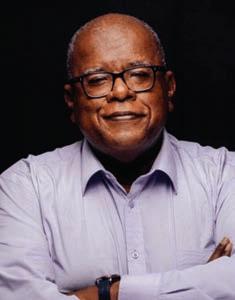
At that point (the next 5–15 years), the remaining white families will pull their children out and place them into the burgeoning private sector, where government has even less authority to decide on admissions policies. In that cloistered environment, school
Since government has no plans for radically reducing inequalities in education, its strategy is to keep the 20 per cent of schools intact through an interesting pact.
We need a new government whose exclusive focus is on the majority of schools. The solutions are simple. Build the school system from the bottom up by making substantive investments in early childhood education, not the pittance promised in the latest presidential announcements. Imagine that the record amounts of billions spent on bursaries for a minority of students in the higher education system were matched by that magnum of investment in quality education for every preschool child. That would guarantee system change from below.
But it will not happen because of politics government puts money at the wrong end of the education pipeline, the universities.
The form of governance closest to the people will continue to be volatile unless five urgent questions are addressed immediately, writes DR HARLAN CLOETE , a research fellow at the Centre for Gender and Africa Studies at the University of the Free State, founder of the Great Governance ZA podcast and founder member of community radio KC107.7 in Paarl
//South Africa is the most unequal country in the world, as confirmed by a World Bank report in 2023. Municipalities the sphere of government closest to the people operate in an increasingly volatile, uncertain, complex and ambiguous environment, as witnessed by the almost daily service delivery protests and community perception of a corrupt, uncaring and incompetent local government. The increase in fragile local government coalitions since 2016 has only amplified the negative narrative.
Various reports from the office of the Auditor-General over the past decade concluded that unless the root causes of local governance (read behaviour) failures are addressed (inadequate skills and capacity and a lack of accountability and consequences), service delivery will continue to lag, compromising sustainable development, thus leaving local government incapable of addressing the wicked problems of poverty, unemployment, inequality and corruption.
The National Treasury, in 2022, noted that over the past five years, more than R40-billion was allocated to programmes dedicated to building local government capacity. However, despite billions being allocated to local government, very little has changed in municipal capability (the ability to get things done). The result is that many municipalities have capacitated individuals, but the organisation remains incapable of functioning optimally. Internal capabilities, such as basic administration and procedures and documented processes and control systems, in determining local government outcomes are often overlooked
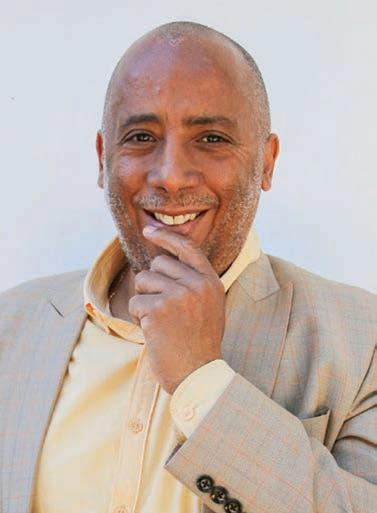
So, how do we fix the governance mess we find ourselves in and place local government on a more sustainable path? The 2021 Municipal Staff Regulations provide our best opportunity to get this right. The latter sets an institutional framework to professionalise local government.
To ensure this is not just another failed policy, researched and developed an evidenced-based governance implementation framework, Governance5iQ, structured along five core questions that incorporate King IV governance principles.
Unless the root causes of local governance (read behaviour) failures are addressed (inadequate skills and capacity and a lack of accountability and consequences), service delivery will continue to lag.
Many municipalities have capacitated individuals, but the organisation remains incapable of functioning optimally.
1. Why do we do what we do (vision)?
This allows the organisation to define the unique contribution and impact it wishes to make with specific, measurable, achievable, realistic timeframe goals that are communicated to all levels of the organisation.
2. How is it being done (mission)?
This allows the organisation to identify clear implementable plans (strategies) together with the standard operating procedures and policies. This section explains the organisational daily disciplines (day-to-day tasks).
3. How will we know at any given moment that we are on track (monitoring and evaluation)? This question incorporates monitoring and evaluation. The organisation needs credible real-time data (evidence) on key indicators with analysis and monitoring routines involving all key stakeholders. This could include key performance indicators for all managers.
4. If we are not on track, what is being done about it (consequence management)? This question addresses the issue of consequence management. The organisation should set in place agreements on corrective actions to be taken that are refined continually with a focus on innovative approaches to problem-solving.
5. How do we lead and learn (knowledge management)? The final question addresses the issues of organisational leadership and knowledge management by questioning the organisational commitment to innovation and lifelong learning. This is achieved through a relentless pursuit of continuous improvement and high performance. Governance5iQ is a pragmatic approach functioning on two tracks that address local government’s capacity (competencies of individuals) and capability (factors impacting the organisational ability to get things done) to achieve sustained organisational performance and professionalism in local government.
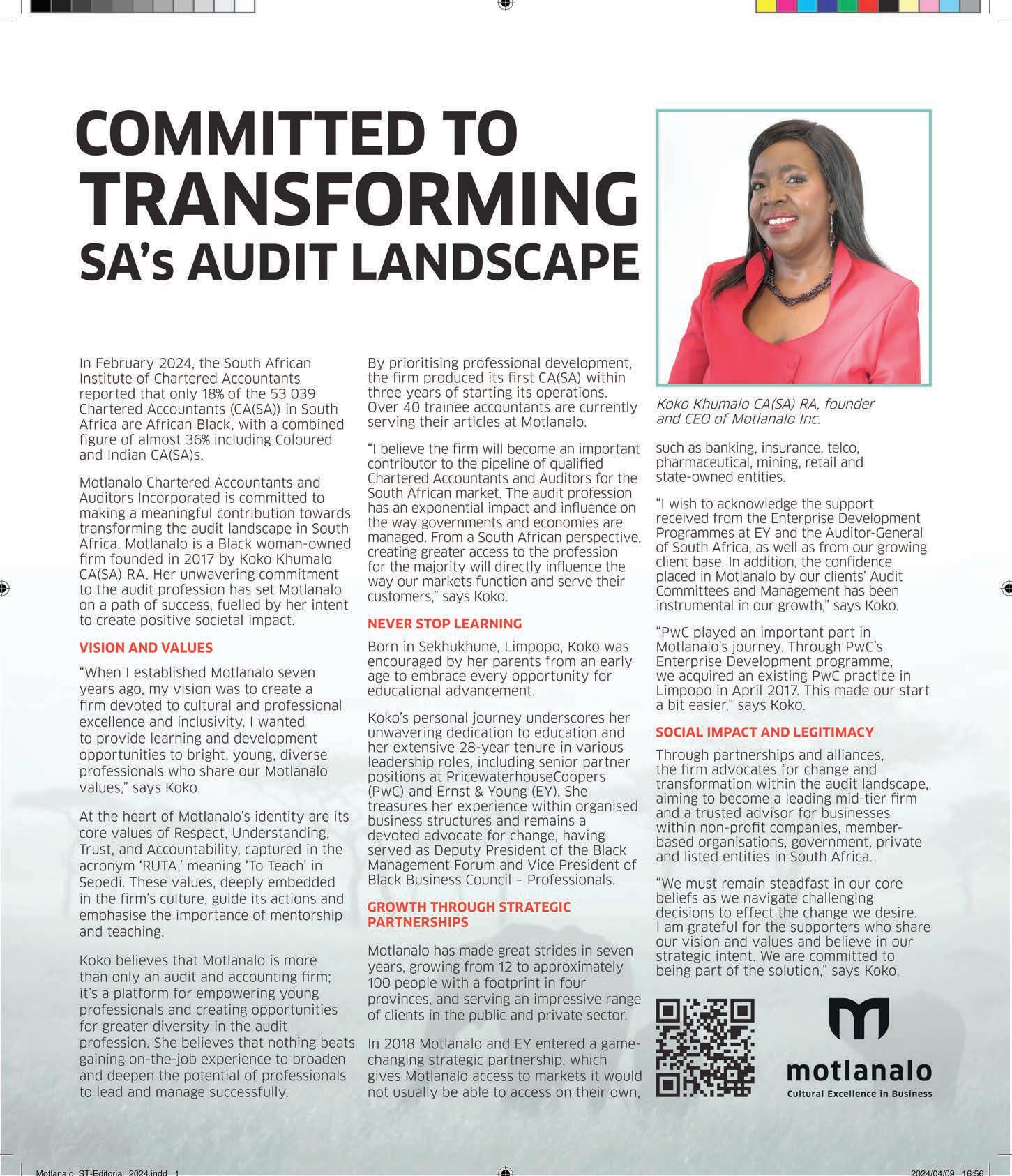
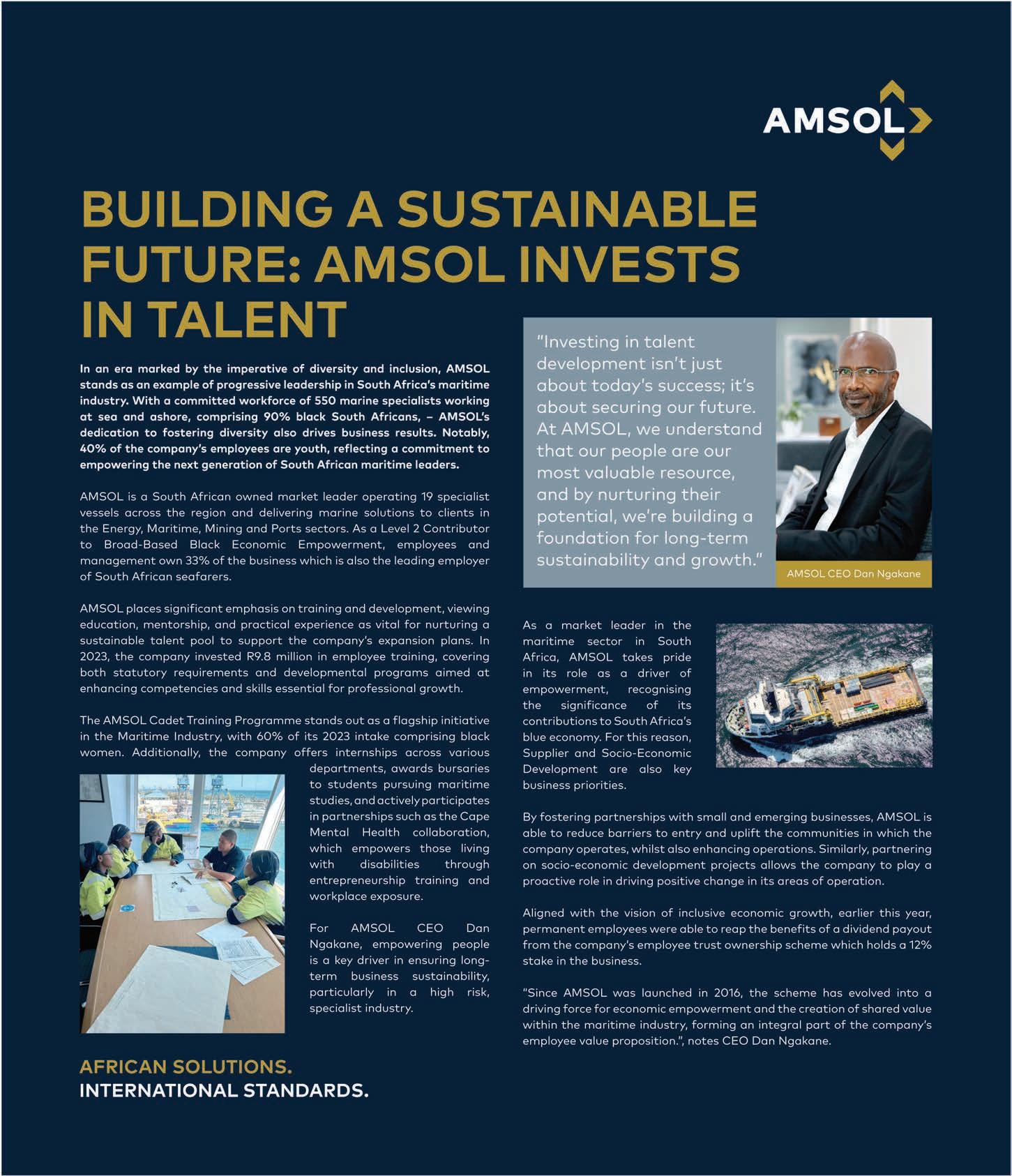
South Africa: a nation divided?
//By BRENDON PETERSENDuring the past thirty years the country’s technological landscape has undergone a transformative journey marked by both progress and persistent challenges. In the pre-1994 era, access to technology was overwhelmingly skewed towards the privileged white minority, leaving the majority of the population, particularly in the townships and rural areas, severely underserved. However, in the post-apartheid era, the government and private sector have made concerted efforts to bridge this digital divide and harness the power of technology to drive inclusive growth and development.
The COVID-19 pandemic has laid bare the stark realities of this digital divide, as the sudden shift to remote work and online learning exposed the vast disparities in access to infrastructure and digital literacy. While affluent communities were able to transition seamlessly to the digital realm, many township and rural residents found themselves left behind, unable to participate fully in the digital economy.
South Africa’s fourth industrial revolution (4IR) strategy has sought to address these challenges by focusing on skills development, infrastructure investment and fostering innovation within previously marginalised communities. One example of this effort is the Huawei ICT Competition, an annual event that has become a powerful platform for nurturing and showcasing the country’s tech talent.
“In 2022, we made really good progress,” says Shawn Huxiaotong, Service Delivery and Talent Ecosystem director at Huawei Enterprise South Africa. “To date, more than 72 academic institutions have enrolled in the programme across all nine provinces, with more than 2 700 students and lecturers participating in Huawei ICT certification training, and more than 2 100 students obtaining Huawei certificates.”
The competition has not only provided students with valuable skills and certifications, but also served as a springboard for their
careers, with several participants going on to secure employment in the tech industry. “I would’ve never imagined that what started as a simple interaction with Huawei at Wits during a career fair would turn out to be perhaps the single most important interaction would have in probably my entire academic career,” says Golden Mthimunye, a top achiever in the Networking category.
While initiatives such as the Huawei ICT Competition are making strides, the challenge of bridging the digital divide remains daunting. As Arthur Mukhuvha, general manager at the MTN Foundation, notes: “Theft and vandalism of network infrastructure has been one of the biggest challenges faced by MTN over recent years.” To combat this, the telecommunications giant partnered with the Gauteng Provincial Community Police Board to support community policing forums and implement stringent security measures at their network sites.
Beyond just infrastructure, MTN has also focused on digital literacy and skills development, launching the MTN Skills Academy. This platform offers free access to online learning and career guidance, targeting youth, women and entrepreneurs in the ICT sector. “It gives young people access to free career guidance and digital and financial courses via an MTN web-based platform and to develop and improve entrepreneurial skills, knowledge and business practices for small businesses within the ICT sector,” Mukhuvha explains.
The impact of these initiatives is beginning to bear fruit with stories of entrepreneurs in connected township communities leveraging digital services to create new economic opportunities. One example is the MTN Women in Digital Business Challenge, which provided 10 female-led small and medium enterprises (SMEs) with R100 000 each in working capital, business development support and mentorship.
“Each SME received training, small business support and coaching and entered a four-month

mentorship programme to ensure effective deployment of capital and resources, further accelerating their business and rate of success, or the opportunity and tools to create future businesses that are robust, innovative and able to succeed in a challenging and ever-changing landscape,” Mukhuvha comments.
However, the digital divide is not solely a challenge of access and infrastructure. As Clayton Naidoo, senior director at Cisco, points out: “There is certainly a gap between medium-income households and marginalised communities. The reason for this is largely access to internet and technology.”
Naidoo emphasises that the lack of exposure to technology and industry in marginalised communities has limited the career aspirations of many young people. “Traditionally, if a community hasn’t been exposed to the industry, the career desires of youth specifically become limited to doctors, lawyers, engineers, and so forth mainly because this is what they’ve been exposed to from a career perspective.”
To address this, Naidoo says Cisco has focused on its impact initiatives, such as the NetAcad programme, which aims to bring digital skills training to deeply marginalised communities through partnerships with
nonprofit organisations and libraries. “We have something called the talent bridge programme, so if a student is certified in cybersecurity, the platform can match their profile to job opportunities in the Cisco partner ecosystem globally.”
The need for continued investment and innovation in the digital space is clear. Partnerships between the government, private sector and communities will be crucial in ensuring that the benefits of the 4IR are distributed equitably and that no one is left behind.
“Effective public-private partnerships and policies to holistically support the digital economy could yield competitiveness, growth and jobs in South Africa,” Mukhuvha says.
“The newly announced Gauteng Broadband Network partnership between MTN and the Gauteng government is aimed at digitising township economies and will see an enormous growth in economic participation.”
One key area requiring urgent attention is the affordability of data and digital services. While MTN has made strides in reducing data prices
and introducing more flexible, affordable offers, the cost of connectivity remains a significant barrier for many township residents.
“Data is the new currency, this means consumers rely on our services to connect for schooling, work and transacting business. The enabler to better connectivity and data affordability is the modernisation of our network,” he explains. “MTN will continue to modernise its network to ensure that every South African gets seamless connectivity, which ultimately enables them to perform businesses, attend online school and work everywhere they are.”
Beyond just connectivity, there is a pressing need to address the digital skills gap, particularly in areas, such as coding, cybersecurity and data analysis. Initiatives, such as the MTN Skills Academy and Cisco’s NetAcad programme, are steps in the right direction, but more can be done to ensure that township residents have access to high-quality, industry-relevant training.
“Besides digitising education and equipping our entrepreneurs in townships with required
digital skills, we believe there is a lot companies could do to contribute to the township’s gross domestic product and the country as a whole,” Mukhuvha says. “Over the past three decades, we have embraced a different perspective, recognising that realising the aspirations set at the dawn of our democracy requires us to work hand in hand with government.”
Through forging innovative partnerships, MTN and Cisco have enhanced their service to customers and contributed to the overall development of the country. The recently announced Gauteng Broadband Network partnership is a prime example of this collaborative approach, which aims to digitise township economies and drive economic growth.
As South Africa looks towards the next 30 years of democracy, the need for continued investment and innovation in the digital space is clear. By harnessing the power of technology, the country can drive economic growth, foster greater social inclusion and uplift the lives of its citizens, particularly those in historically disadvantaged communities.
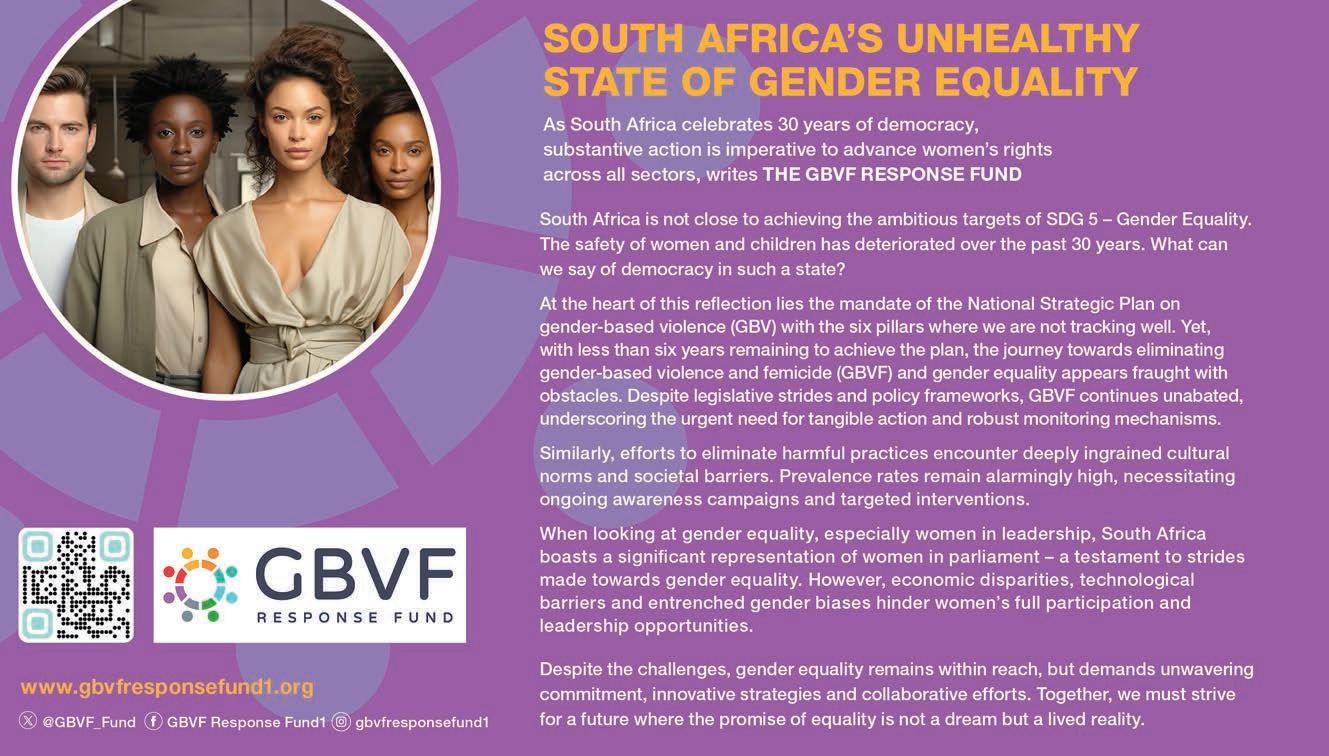

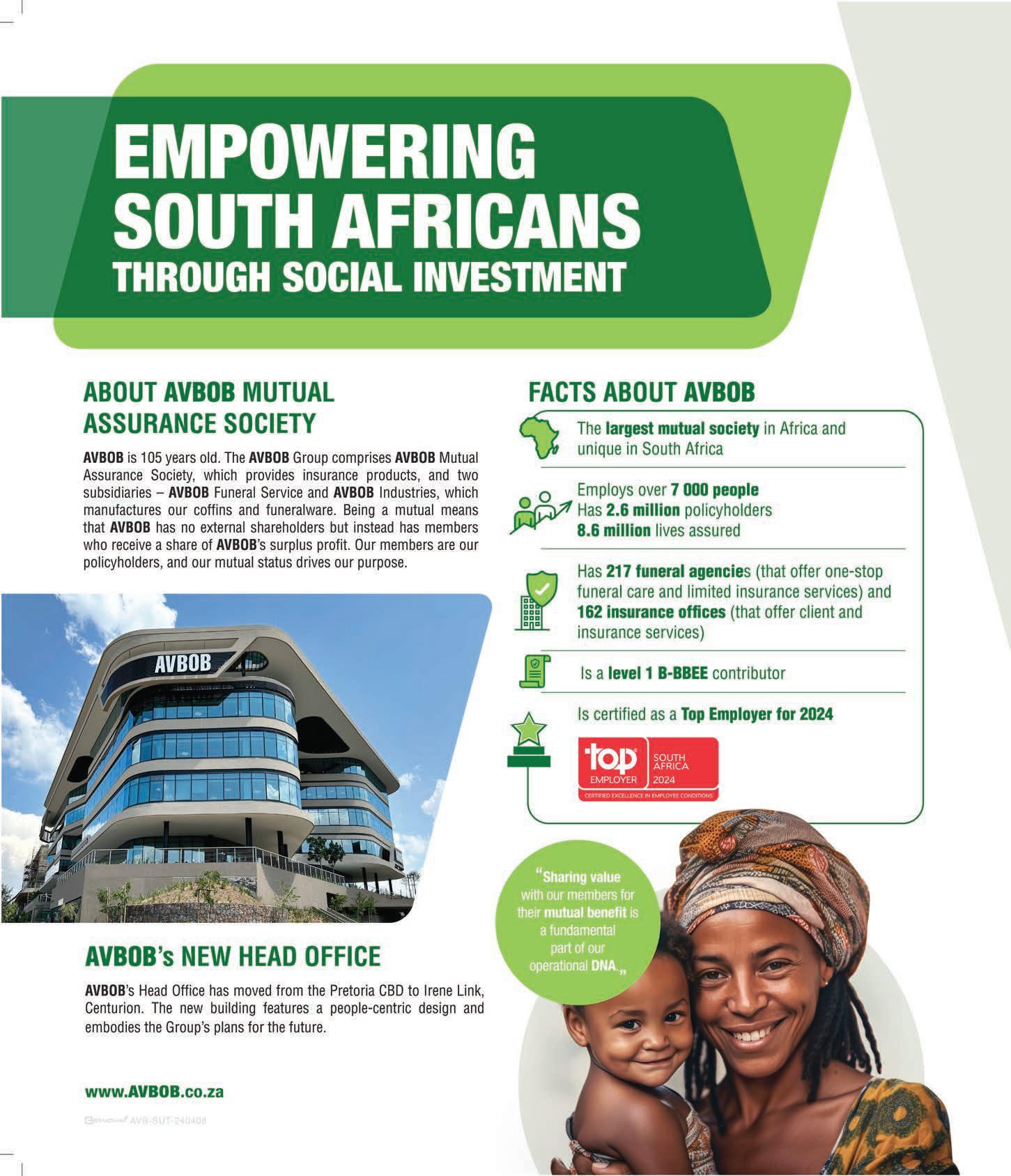
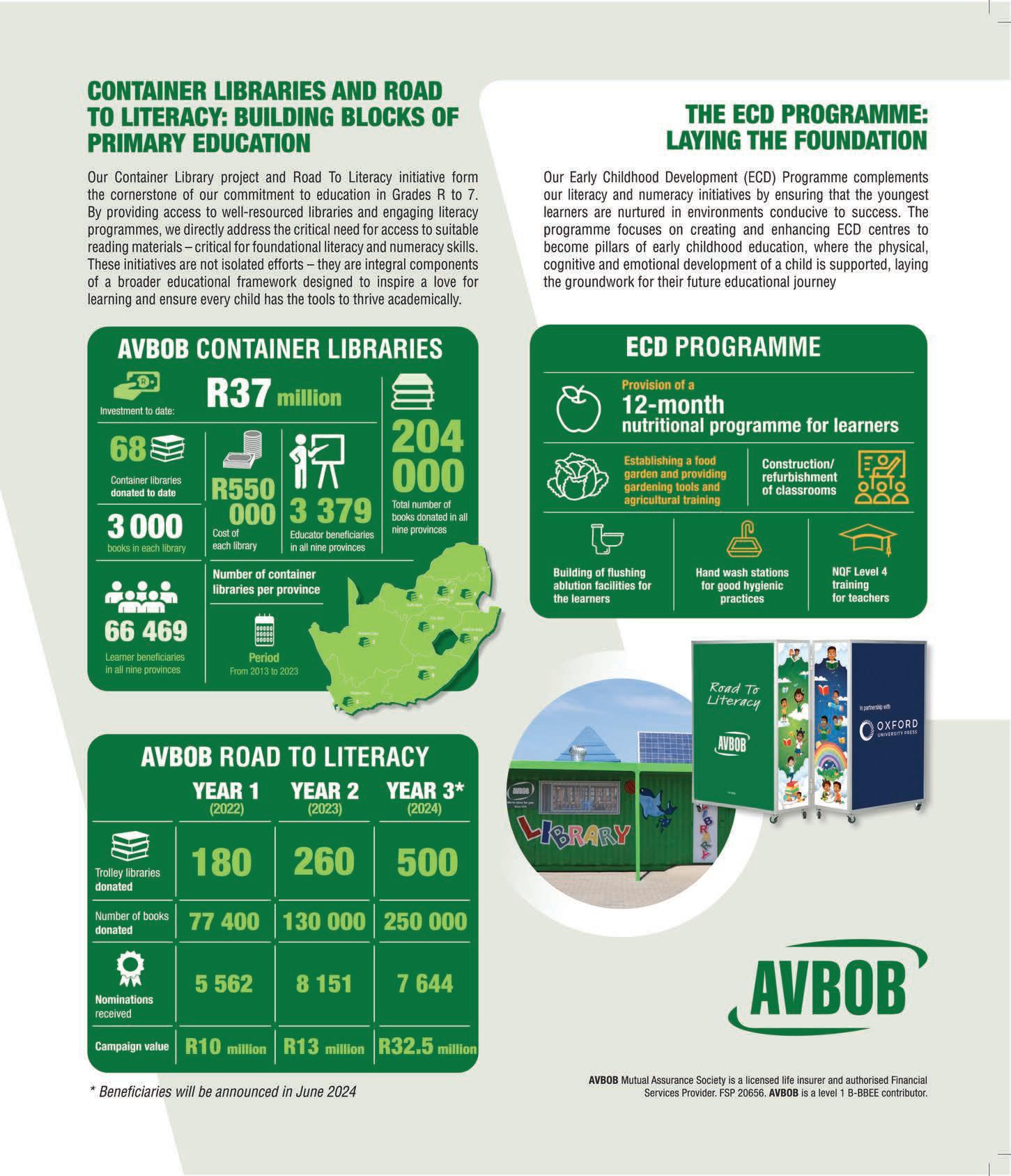
Are the Department of Trade, Industry and Competition’s masterplans really having a notable impact on industry verticals, asks TREVOR CRIGHTON
Across the Department of Trade, Industry and Competition (dtic), the Industrial Development Corporation (IDC) and the National Empowerment Fund (NEF), R36.7-billion in funding was approved to more than 1 000 black industrialists and black-owned businesses from 2015 to 2022.
According to a “dtic Support for Transformation and Black Industrialists” presentation from 14 June 2022, that amount comprised R27.4-billion in loans from the IDC, R5-billion mainly in loans from the NEF to support black-owned entrepreneurial ventures and R4.2-billion in grants from the dtic Black Industrialists Scheme (BIS).
The BIS seeks to increase the level of participation of black South Africans in ownership and control of productive enterprises in key sectors and value chains. BIS is a key part of government’s broad industrialisation initiatives to expand the industrial base and inject new entrepreneurial dynamism into the economy.

The dtic has developed several masterplans since 2019 to help create conducive conditions for local industries to grow. The masterplans assist companies in improving their industrial capacities and sophistication, focusing more on export orientation and reclaiming domestic market space lost to imports.
The department currently has seven masterplans in action, covering: automotive; retail clothing, textile, footwear and leather; sugar; poultry; steel and metal fabrication; furniture; and global business services.
THE BIS SEEKS TO INCREASE THE LEVEL OF PARTICIPATION OF BLACK SOUTH AFRICANS IN OWNERSHIP AND CONTROL OF PRODUCTIVE ENTERPRISES IN
Acting accounting officer for the dtic, Malebo Mabitje-Thompson, listed several key highlights in the department’s 2022/23 annual report, particularly focusing on the Automotive Masterplan. In April 2022, Isuzu Motors South Africa launched the Isuzu D Max in Gqeberha, following its investment announcement of R1.2-billion at the 2019 South Africa Investment Conference. This is the first locally engineered and produced seventh-generation bakkie to be produced in South Africa by Isuzu Motors SA.
In September 2022, Heston Harness launched its plant in KwaDukuza, KwaZulu-Natal. In partnership with Yazaki Corporation, Heston Harness manufactures wiring harnesses and instrument clusters supplied to original equipment manufacturers, including Toyota, Isuzu, Nissan and Ford.
Since the announcement of the R15.8-billion investment by Ford Motor Company of Southern Africa, significant strides have been made in the construction of the Tshwane Automotive Special Economic Zone.
The plant has the capacity to build 200 000 vehicles annually, targeting 100 global markets. In November 2022, the production of the first next-generation Ford Ranger at the Silverton Plant in Pretoria commenced creating 1 200 additional jobs and bringing the Ford workforce in South Africa to 5 500 employees. In addition, an estimated 10 000 new jobs were created across Ford’s local supplier network.

The investment made by the 10 suppliers within the Tshwane Automotive Special Economic Zone currently sits at R3.62-billion and is set to rise to R4.2-billion. The total number of permanent jobs created by these suppliers was 1 259 (76 per cent youth and 32 per cent women), against a projected target of 2 080 to be realised as production increases.
Microfinish, a 100 per cent black-owned automotive valve guide and valve seat manufacturer, is one of the success stories of the black industrialist programme.
The company, which officially launched on 7 July 2017, employs 123 people and exports 95 per cent of its products. Microfinish used the funding from the programme to diversify its offering to include the manufacturing of locomotive valves that were 100 per cent imported. As a result, Microfinish grew its turnover by 60 per cent in 2016, and the workforce increased by 40 per cent.
The tourism industry’s value to South Africa saw it identified as one of seven priority sectors within South Africa’s Re-Imagining Industrial Strategy, approved by the cabinet in 2019. The tourism industry contributes 8.6 per cent to the South African gross domestic product and provides for 9.2 per cent of total employment within the country, according to the World Travel Tourism Council.
Armed with this mandate, the Ministry of Tourism developed its own tourism masterplan to galvanise government, industry and labour to collectively share a common vision to position the tourism industry on an inclusive and sustainable competitive path for the benefi t of all South Africans.
The masterplan outlines a set of interventions to ignite the recovery anchored in three strategic themes Protecting and Rejuvenating Supply, Re-igniting Demand, and Strengthening Enabling Capability for long-term sustainability.
There’s a link to the dtic’s BIS as well, based on the idea that empowerment lays the foundation for deeper growth through greater economic inclusion that widens the talent pool of enterprise drawn from black South Africans, women and young people.
THE MASTERPLANS ASSIST COMPANIES IN IMPROVING THEIR INDUSTRIAL CAPACITIES AND SOPHISTICATION, FOCUSING MORE ON EXPORT ORIENTATION AND RECLAIMING DOMESTIC MARKET SPACE LOST TO IMPORTS.
Professor Elmarie Slabbert, professor in Tourism Management at the School of Tourism Management, North-West University and Director of the Tourism Research in Economics, Environs and Society (TREES) Research Unit, says the BIS process is bearing fruit in the training environment, too.
“Training institutions offering tourism and hospitality qualifications to empower employees are widespread and available, and the need for more institutions might increase depending on the industry’s growth. It is the industry’s responsibility to appoint people with the necessary skills and qualifications to grow the industry,” she says.
“In addition to qualifications, there are numerous opportunities for students through the learnerships of the Culture, Arts, Tourism, Hospitality and Sport Sector Education and Training Authority (CATHSSETA), for example, to develop skills and gain experience while working. All of these efforts assist in training people to work in the industry.”
the solution for everyone without work. To be successful in this industry requires knowledge and skills in how to manage a tourism business, sell an experience and work with people,” she explains.
“Many provincial and municipal tourism products and attractions have not been sustained over the last few years. This is the perfect opportunity for black South Africans to enter the industry and be empowered to manage these existing facilities through collaboration, and also receive the necessary training. Understanding this industry, addressing the needs of different markets, dealing with industry uncertainties and people’s willingness to travel takes time to grasp. Success in the tourism industry does not happen overnight and in many cases takes years to build.”
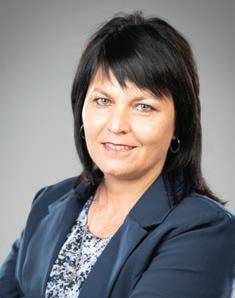
Professor Slabbert highlights the success of broad-based black economic empowerment partnerships in the tourism industry, for example, Kgabo Safaris, founded by Bernard Marobe, and notables, such as Buffalo Ridge and Thakadu River Camp, which are 100 per cent owned by local communities.

Professor Slabbert says her department at North-West University equips managers for the tourism industry with the knowledge to make a difference in the tourism sector. “It is also true that due to the pandemic and the standstill of the sector, many young people do not want to enter the sector, leading to staff shortages and loss of experienced employees a gap that needs filling. Tourism is a serious business for which we need well-trained employees if we want to grow visitor numbers.”
Broad-based black economic empowermentlinked funding and support is one thing, but Professor Slabbert says the tourism industry will become more representative when those who are employed really want to work in the industry, when the importance of training is recognised and awarded, when the importance of the private sector in driving tourism as a sector is highlighted and supported and when collaboration benefits all parties involved.
“One should realise that working in tourism and hospitality is not for everyone and is not
“Some of the children that grew up in these communities are now in management positions and are extremely successful,” she says.
Government is good at theory, but less so at implementation yet it seems as though masterplans such as those espoused by the dtic and the Ministry of Tourism are having a tangible impact on targeted business verticals.


ANTON VISSER, Group COO of SA Business School, shares three ways to maximise the skills development component of your B-BBEE scorecard

With financial year-end looming, businesses are often pressurised to ensure that all measures and skills development best practices are on track to maximise their broad-based black economic empowerment (B-BBEE) scorecard points for the coming year.
Skills development is a critical and rewarding element of the B-BBEE scorecard, contributing at least 25 points. But it’s not always easy to achieve these targets, especially if you lack the time, resources, or knowledge to implement and document truly effective training programmes. In some cases, overlooking opportunities and incentives can make more of a difference than you realise when maximising the skills development component of the scorecard.
SA Business School, part of the Alefbet Learning Group, offers the following tips and advice on how to boost your skills development score and get the best return on investment (ROI) for your business.
1. Consider the “employed learnership”. You can get points from learnerships for your existing employees the people already on your payroll. Upskill your current employees while
claiming back a portion of your levy and enjoying the tax benefits. These work-based learning programmes yield nationally recognised qualifications, helping you address skills gaps, improve performance and retain talent.
To implement, register a skills development facilitator and submit a workplace skills plan (WSP) to your Sector Education and Training Authority (SETA). Then select a training provider that offers the relevant learning programmes.
Note that the learnership must be registered with your SETA, align with the National Qualifications Framework (NQF) and be supervised by a qualified mentor or coach. The learner must also have an employment contract with your company for the duration of the learnership and receive a stipend or allowance plus their salary.
2. Align with the Organising Framework for Occupations (OFO).
The OFO is a tool that classifi es occupations according to skill level and specialisation. Aligning your training interventions with this helps you to identify scarce and critical skills in your sector, plan your training accordingly and avoid investing in irrelevant or redundant training. To use the OFO, match your job titles with the listed occupations and codes and select the corresponding learning programmes.
3. Partner with the right training provider. Always look to training solutions and partners that develop and deliver learning programmes specifically designed for your business and human capital needs. At the same time, you should be assured of academic rigour, practical relevance and quality assurance. Your training provider should assist with: conducting a skills audit and gap analysis; developing a skills strategy and plan;
SKILLS DEVELOPMENT IS A CRITICAL AND REWARDING ELEMENT OF THE B-BBEE SCORECARD, CONTRIBUTING AT LEAST 25 POINTS.

offering a range of courses and qualifications, from short courses and skills programmes to learnerships; providing online, face-to-face or blended learning options; assessing and certifying learning outcomes; and reporting and evaluating training impacts. The benefits of getting your house in order on skills development means you can tick all-important boxes that include:
1. Identified skills gaps and training needs.
2. Planned and budgeted for training interventions.
3. Claimed 100 per cent of the training cost as skills development expenditure, provided that the training aligns with the NQF and Skills Development Act.
4. Claimed bonus points for training previously disadvantaged individuals, women and people living with disabilities, as well as scarce or critical skills development.
5. Claimed additional points for training that resulted in a qualification or unit standard or formed part of a learnership or internship.
6. Claimed 20 per cent of your Skills Development Levy back from your SETA provided that you submitted your WSP and annual training report in time.
7. Claimed bonus points for employing unemployed learners who’ve completed a learnership.
Skills development can be a strategic and hugely beneficial way to boost your B-BBEE rating, maximise ROI and reap the benefits of a more skilled, productive and competitive workforce. The online WSP submission window opened on 15 February 2024 and closes on 30 April 2024.
In an industry traditionally dominated by men, the maritime sector is experiencing a notable transition towards increased gender diversity and inclusion. Amid this movement, the SOUTH AFRICAN INTERNATIONAL MARITIME INSTITUTE is active in empowering women to take on leadership roles across different maritime sectors
The South African International Maritime Institute’s (SAIMI) commitment to gender equality is evident in its Accelerated Development Programme for Women in Maritime Leadership (ADPW). Developed for SAIMI by the Nelson Mandela Business School, this programme forms a cornerstone of the Imbokodo in Maritime Transformation Programme, dedicated to breaking down the proverbial glass ceiling for women and fostering a more inclusive maritime sector.
“The Accelerated Development Programme for Women in Maritime Leadership exemplifies the dedication to providing women with the skills, resources and opportunities needed to thrive in leadership roles within maritime. Equipping women leaders with the tools to succeed not only transforms individual lives, but also drives positive change throughout the sector.
Our commitment to gender equality is unwavering and we will continue to champion diversity and empowerment in all aspects of our work,” says SAIMI CEO Odwa Mtati.
Launched in October 2022, the ADPW was instituted after consultations with key stakeholders such as WISTA (Women’s International Shipping Trading Association). It represents a bold step in addressing the longstanding gender imbalance within the maritime industry. Through a carefully curated curriculum, the programme equips women leaders with the skills, knowledge and strategic insights necessary to thrive in today’s dynamic maritime landscape.
From leadership essentials to strategic management, the ADPW covers a range of modules designed to empower delegates to navigate the complexities of leadership with confidence and competence. By providing a supportive and inclusive learning environment, SAIMI ensures that women in the maritime sector have the opportunity to reach their full potential and make meaningful contributions to the industry.
The second cohort of the ADPW, comprising a diverse group of 19 officials, including returning participants and new intakes, underscores the programme’s growing impact and reach. The programme offers face-to-face sessions aimed at fostering collaboration, networking and knowledge exchange among participants.
Nozipho Booi, a participant from Transnet National Ports Authority (TNPA), expresses her organisation’s dedication to fostering women’s leadership and development as well, stating: “The boardrooms within TNPA reflect this commitment.” Booi emphasises her interest in the technology and project management modules offered by the ADWP, highlighting their importance in maritime operations.
Another participant, Mariette Weyers of Siyaloba Training Academy, adds that the ADWP has been most useful for those in training and development. “Staying abreast of maritime developments is paramount to providing our trainees with current and effective skills,” she says.
The ADPW stands as a significant programme within SAIMI’s broader efforts of actively collaborating with various partners on initiatives aimed at advocating for meaningful change towards a more inclusive future within maritime. The institute looks forward to collaborating with WOMESA (Women in the Maritime Sector in Eastern and Southern Africa) and WISTA in programmes that support women’s empowerment.
Tandiswa Jacobs from the Department of Forestry, Fisheries and the Environment underscores the signifi cance of the ADWP in addressing critical challenges facing our oceans. Responsible for Oceans and Coast Compliance and actively engaged in the working groups of Operation Phakisa, which aims to unlock the economic potential of South Africa’s oceans, Jacobs recognises the pivotal role of maritime technologies in mitigating marine pollution and supporting sustainable development.

She emphasises the importance of initiatives, such as the ADWP, in equipping professionals with the knowledge and tools to address complex maritime issues and contribute to preserving marine ecosystems.
“By empowering women leaders, SAIMI seeks to support initiatives that drive positive change throughout the maritime industry. SAIMI is working towards a future where diversity and inclusion are not just aspirations, but realities,” says Mtati.


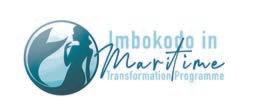



Amid the bustling landscape of South African business consulting is a beacon of change and progress
Siyakha. Founded 26 years ago by visionary strategist Dionne Kerr, this consulting company has emerged as a catalyst for transformation, driving both commercial success and societal impact. Kerr shares Siyakha’s journey, mission and vision.
“Siyakha is the culmination of our realisation that corporate, governmental and social needs do indeed converge,” reflects Kerr. “An integrated, discrimination-free way of doing business, prioritising localisation, is not just good for South Africa; it’s good for business and can drive business results and social change.”
Passionate about driving change, Kerr embarked on a journey that would redefine the landscape of consulting in South Africa. “Broadbased Black Economic Empowerment has a terrible name, and it is by no means perfect,” she acknowledges, “but if implemented according to the intent, it can and does create real results.”
Siyakha’s mission transcends traditional consulting paradigms. “Siyakha is committed to co-creating solutions that address the complex challenges facing South Africa,” says Kerr. “By prioritising education, social development and authentic transformation, we aim to create a robust economy that benefits all stakeholders.”
The company provides an extensive range of services, from advisory to implementation. “Ensuring these services are tailored to meet the unique needs of our clients is a cornerstone of our approach,” Kerr shares.
“Our methodology is deeply rooted in crafting solutions that revolve around the specific context of each client’s business. Whether a state-owned company, a private sector organisation or an aspiring small, medium and micro enterprise (SMME) seeking assistance to transition from ideation to growth, our process begins with a comprehensive understanding of our client’s operations, challenges and objectives. From there, we draw on our toolkit of strategies and insights to develop customised solutions that align with our clients’ goals, recognising that one size does not fit all in the complex landscape of business and development,” Kerr explains.
What sets Siyakha apart is its collaborative approach to development. By partnering with clients and stakeholders, Siyakha has spearheaded initiatives that yield tangible results. From empowering women-owned enterprises to fostering SMME growth, Siyakha’s success stories exemplify the power of collaboration in driving positive change.
At the core of Siyakha’s ethos is the commitment to understanding clients’ unique needs and challenges to ensure solutions are effective and sustainable and have a long-term impact on the communities it serves.
Central to Siyakha’s philosophy is the Siyakha Impact Trust, dedicated to maximising the impact of corporate social investment. By aligning funding with strategic goals and tracking impact meticulously, Siyakha amplifies the effectiveness of social initiatives, paving the way for meaningful change.
“At Siyakha, sustainability is a guiding principle embedded in every facet of our work,” says Kerr. “By integrating environment, social and governance principles into consulting
services, we ensure that business success goes hand in hand with environmental and social responsibility.”
Recognising the vital role of SMMEs in driving economic growth, Siyakha launched the Yowza initiative. “This online platform provides SMMEs with the tools, resources, and guidance to thrive in a competitive landscape,” explains Kerr.
As Siyakha looks to the future, Kerr envisions a continued focus on water access and enabling environments for South Africa’s youth. With unwavering dedication and a commitment to making development happen, Siyakha is poised to shape a brighter tomorrow for South Africa and beyond.
Siyakha’s journey is not just about consultancy, it’s about rewriting the narrative of development in South Africa. Through innovation, collaboration and the pursuit of progress, Siyakha is proving that business success and social impact are not mutually exclusive. As Kerr aptly puts it: “Opportunity is within reach for every child, but it’s the attitude, hard work and determination that will convert opportunity into livelihood.”



South Africa’s growing appeal as an offshore business destination, particularly for business process outsourcing and customer experience, could boost its struggling economy and create much-needed employment opportunities if it can acquire the skills vital for capitalising on this opportunity, writes
LORELLE BELLSouth Africa was rated the best destination for offshore customer experience by the North American market and popular in the German, Australian and British markets in a 2023 global survey. South Africa invested R569-million in business process outsourcing in 2023, with more than R3-billion invested since 2016.
A short supply of critical skills could, however, hamper South Africa’s ability to leverage the powerful combination of demand and investment in business processing and other industries with high-growth potential.
Skills identified as scarce in the Department of Higher Education, Science and Innovation’s National List of Occupations in High Demand include high and middle-level managers across sectors, scientists, engineers, designers, health professionals, educators, IT experts, lawyers and technicians.
Noting the importance of skills development as a driver of economic competitiveness, growth and employment creation, President Cyril Ramaphosa explained the country’s response in a post-State of the Nation address on 12 February: “We have invested much in producing these skills, from significantly expanding access to higher education, introducing digital programmes in TVET colleges and a shift to a new pay-for-performance approach to skills development.”
While steady increases have been recorded in under- and post-graduate qualifications since 2018, a Skills Supply and Demand report reveals that graduate unemployment nearly doubled between 2018 and 2021 (from 125 000 to 217 000), with business graduates representing the majority 80 000 of this rise, followed by engineering and science. Moreover, the
“AN
report shows significant numbers of employed graduates working in sectors not linked to their qualifications, compounding the impression of a serious skills mismatch. The report says: “Businesses should play a greater role in qualification curricula and career pathways so that students acquire those skills that are demanded by the labour market.”
The government has adopted a two-pronged approach to meet the challenge of aligning labour supply with the demands of industries requiring high-level skills, adding a drive to facilitate foreign critical skills through improvements to the visa system to its skills development strategy. Ramaphosa explained that the proposed amendments include the introduction of a remote working visa to accommodate skilled workers in evolving industries, such as the tech sector, a points system for critical skills visas and a “Trusted Employer Scheme” aimed at simplifying the visa process for large investors and reducing administrative burdens for skilled foreign workers’ employment.
These reforms will help counter the shortcomings illustrated in the Report of the Work Visa Review, with data from the Department of Home Affairs Visa Adjudication System showing that an average of 52 per cent of all critical skills and 49 per cent of all general work visas were rejected between 2014 and 2021, with an average of 68 per cent business visas rejected over a similar period. This means only 325 of 1 548 business visa applications, 16 097 of 33 728 critical skills and 4 827 of 9 508 general work visa applications were approved.
The review also points out the importance of updating Home Affairs’ Critical Skills List
to meet the rapid evolution of skills needed in fast-changing economies and to be flexible with employers as “a firm may require an individual with highly specific experience, regardless of their qualification, and a catch-all list of occupations cannot cater for such unique circumstances”.
In the interim, new approaches to meet skills could be adopted. Faeeza Khan, head of research at Flux Trends, in “The Rise of New and Blue Collar Jobs”, says an increasing number of young people have developed tech skills without formal qualifications (new collar workers) and calls on government and businesses to adapt to the new reality.
“Policymakers in countries with high unemployment should invest in and encourage the creation of courses for new collar workers,” she explains. “Businesses should develop in-house training and upskilling programmes to help existing employees and job applicants acquire the skills needed for new collar jobs, and adapt hiring practices focused on skills and competencies rather than formal education.”

Rise of New and Blue Collar Jobs post

ANELISA TUSWA writes that the inclusion and empowerment of women in the economy goes beyond being a constitutional right
For the global community to achieve gender equality will take 131 years, according to the World Economic Forum’s Global Gender Gap Report 2023. The report also stipulates that this level of “achievement” does not mean 100 per cent equality only 68 per cent of the current gender gap is expected to be closed by the year 2155.
The United Nations (UN) reports that when more women work, economies grow. The UN estimates that closing the gender gap could give the global economy a $7-trillion boost. And, women’s economic equality is good for business. According to 2022 research by the Bank of America, S&P 500 companies with at least 25 per cent female executives saw a consistently higher subsequent one-year median return on equity since 2010.
With sluggish real economic growth of 0.6 per cent in 2023, as reported by Statistics SA, including women in the economy is crucial, and government seems to be fully aware of this.
In his 2024 State of the Nation Address, President Cyril Ramaphosa mentioned that the government has put a national policy in place to ensure that 40 per cent of public procurement goes to women-owned businesses and trained around 6 000 women-owned businesses in essential business skills to apply for government tenders.
One of the ‘working’ women empowerment funds is the National Empowerment Fund (NEF)’s Women Empowerment Fund (WEF) aimed at accelerating the provision of funding to businesses owned by black women. Funding ranges between R250 000 to R75-million across several sectors, for start-ups, expansions and equity acquisition purposes.
WEF uses various funding instruments, from secured (senior debt) to unsecured options (equity) and/or a hybrid of the two.
Over the past year, WEF has invested R2.1-billion in the township and rural economy
In his 2024 State of The Nation Address, President Cyril Ramaphosa shared that the International Development Corporation has earmarked approximately R9-billion to invest in women-led businesses to drive inclusive economic growth. Other entities, including the Public Investment Corporation and the National Empowerment Fund have also committed to establishing special-purpose vehicles to support women-owned businesses.
and distributed over R1.6-billion towards 454 female-owned SMEs.
The private sector is also pulling its weight. The Absa Business She Thrives, launched in October 2023, is specifically for women entrepreneurs and has already reached thousands of small business owners.
To qualify for support, women entrepreneurs must be registered businesses with a majority shareholding of 50.1 per cent women-owned or 50.1 per cent youth-owned (18–35) and a maximum R20-million turnover.
Benefits include a monthly fee waiver for six months on a new Business Evolve account, free access to Cashflow Manager, an integrated business management and accounting tool and funding up to R5-million on an unsecured basis, supported by Absa’s Enterprise Development and Alternate Lending Solutions.
Recognising the importance of skills development capacity-building and networking, the proposition includes complimentary 12-month access to carefully curated content from the online learning platform Udemy and masterclasses and networking via Lionesses of Africa and the National Small Business Chamber.
FOR LONG-TERM ECONOMIC EMPOWERMENT.



Despite the strides made by these funds, more work needs to be done.
Currently, the existing funds require a certain level of access to business registration, business management skills and often, collateral, which can still be barriers for many women, especially those in rural areas and townships, who often have limited access to resources.
While initiatives, such as the Absa Business She Thrives, are commendable, they may only reach a fraction of the women who need support due to eligibility criteria or limited capacity.
There is also a pressing need for systemic changes to address gender disparities in education, workforce participation and leadership.
Investments in education and skills training for women and girls are crucial for long-term economic empowerment. Accessible childcare facilities and policies promoting work-life balance can also facilitate women’s participation in the workforce.
While initiatives to empower women economically are a step in the right direction, achieving gender equality in the economy requires comprehensive strategies that address systemic barriers and promote a culture of inclusivity and empowerment.
Stakeholder opinions differ on sectoral charters’ empowerment impact in South Africa, writes ITUMELENG MOGAKI
Perceptions among stakeholders of the effectiveness of sectoral charters in achieving empowerment goals within the mining, financial and other services sectors in South Africa are mixed. This is according to Nadia Rawjee, founding executive director of Uzenzele Holdings, who explains that many acknowledge that these charters have laid a foundational framework for transformation, setting clear targets for black ownership, management representation and socioeconomic development. “They are seen as crucial steps towards rectifying historical imbalances and fostering inclusivity in sectors pivotal to the country’s economy.”
However, some critics argue that the impact of these charters has been uneven and challenges remain in fully realising their empowerment goals. “Concerns include the slow pace of transformation, particularly in senior management positions, and questions about the sustainability and depth of empowerment initiatives,” says Rawjee.
She adds that implementing sectoral broad-based black economic empowerment (B-BBEE) charters, particularly in industries such as mining and financial services, has significantly contributed to the empowerment of local communities and the enhancement of enterprise and supplier development in the country.
“These charters, tailored to address the unique challenges and opportunities within specific sectors, have been instrumental in ensuring the benefits of economic activities are more equitably distributed among historically disadvantaged South Africans.”
She shares that in local communities, especially those surrounding mining operations, the charters have led to improved infrastructure, education and healthcare services through social and labour plans.
“These initiatives have uplifted communities and fostered a sense of ownership and inclusion in the country’s economic progress. Furthermore, the emphasis on local procurement and employment has spurred
local economic development, creating jobs and nurturing small businesses within these communities.”
Mike Miller, group CEO of Mantengu Mining Limited, says: “The stated objective of empowerment is to enhance the economic participation of black people in South Africa.” However, the objective is rather vague and should be more definitive, he notes.
“By way of expansion of the objective, it must surely be to create new wealth for black people by providing mechanisms to increase their participation in the economy. This is an important point because the implementation of empowerment is failing as it is primarily creating a black elite rather than broader wealth within the black population an important differentiator as it fundamentally impacts the accessibility of black people to capital markets,” he says.
Miller’s strong view is that empowerment’s core objective must be to create new wealth on a much broader basis. “For this to be achieved, the fundamental rules of funding and risk must be changed to make empowerment more effective,” he says.
He adds that sector charters are being implemented at a time when South Africa is facing a liquidity and equality crisis. “This means that even the very best drafted sector charters are unlikely to achieve the objectives simply because there isn’t the available funding to support the macro objectives. Effective sector charters must be endorsed and supported by the capital and financial markets to be truly effective. For this to happen, the fundamental rules of funding and risk need to change.”
In assessing the impact of South African sectoral charters on empowerment outcomes,

Rawjee says several measurable indicators or metrics are commonly used. These include ownership patterns, management control, skills development, enterprise and supplier development, socioeconomic development contributions and specific sectoral targets.
“These metrics reveal varying degrees of progress across sectors, with some showing significant strides in transforming ownership and management structures, while others highlight ongoing challenges in fully realising empowerment goals,” she says.
Overall, Rawjee says sectoral charters are designed to drive transformation, empowerment and inclusivity, ensuring that all South Africans can participate in and benefit from the country’s economic activities.
These charters’ objectives, including promoting equitable access and participation, align with Uzenzele Holdings’ ethos of fostering economic inclusivity. The mixed perceptions among stakeholders regarding the effectiveness of these charters highlight the nuanced challenges of implementing broad-based empowerment initiatives. Uzenzele’s role in providing advisory services and facilitating access to fi nance becomes crucial in addressing these challenges, offering a practical pathway to achieving the charters’ goals.
“THE IMPLEMENTATION OF EMPOWERMENT IS FAILING AS IT IS PRIMARILY CREATING A BLACK ELITE RATHER THAN BROADER WEALTH WITHIN THE BLACK POPULATION – AN IMPORTANT DIFFERENTIATOR AS IT FUNDAMENTALLY IMPACTS THE ACCESSIBILITY OF BLACK PEOPLE TO CAPITAL MARKETS.” – MIKE MILLER
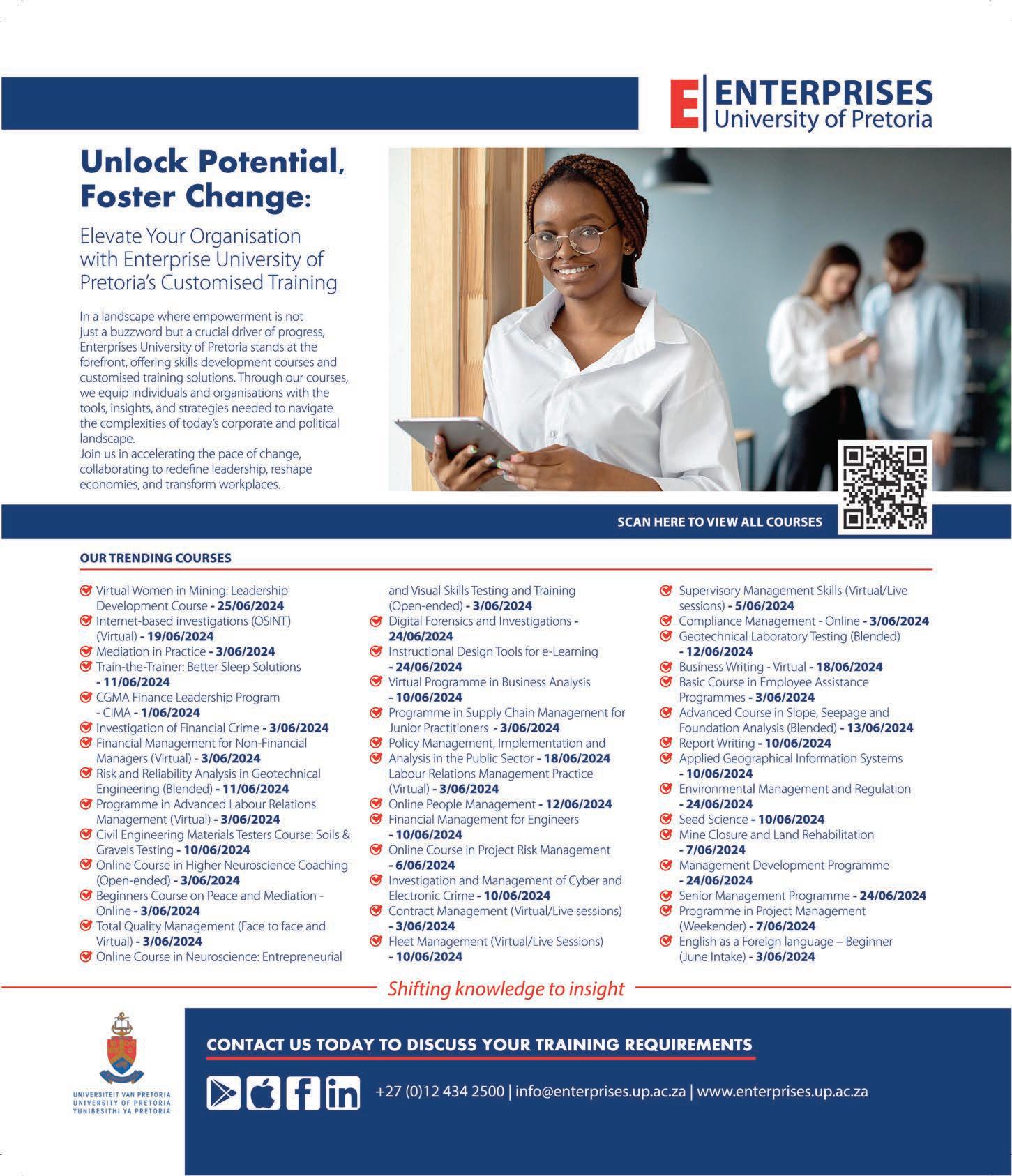
The Chartered Institute for Procurement Supply has submitted detailed recommendations for South Africa’s Public Procurement Bill aimed at advancing the principles of ethical procurement practices within the Southern Africa region, writes the organisation’s Southern Africa general manager, PAUL VOS
The Chartered Institute for Procurement Supply (CIPS) is the only South African Qualifications Authority-recognised professional body in procurement and supply in the country. CIPS’ expertise is crucial to discourse on the Public Procurement Bill legislation.
The bill (B18B–2023), tabled on 30 June last year, seeks to create a single regulatory framework for public procurement and eliminate fragmentation in laws governing procurement in the public sector.
The suggestions CIPS submitted on 22 February 2024 to the Gauteng Provincial Legislature’s Finance Portfolio Committee, include detailed incorporation of environmental and sustainability (ES) considerations, advocate for explicit provisions on capacity-building, call for improvements in dispute resolution mechanisms, moot clear guidelines, contingency planning and checks on emergency procurement, and stress the need for stricter penalties for corruption and fraud.
Other notable recommendations include whistle-blower protection measures to foster an accountable procurement environment, a flexible approach, periodic reviews and alignment with emerging technological trends.
The bill, in its current form, needs to be reviewed to address ES issues, which raises doubts about its comprehensiveness in covering these crucial considerations. Expanding the bill’s attention to ES aspects is essential for fostering a procurement framework that aligns with contemporary global standards, ensures the responsible use of resources and contributes to broader societal and environmental goals.
The legislation should articulate criteria for evaluating the ES performance of each purchase and should be weighted as part of the overall decision-making process. It should also introduce mandatory reporting requirements for transparency and ensure ES considerations form a percentage of the purchasing decision.
Another concern is the need for explicit capacity-building and training provisions for public sector procurement professionals. By not mandating comprehensive training programmes, the bill fails to recognise the dynamic nature of procurement practices and the evolving demands placed on public sector professionals. There is also a historic and ongoing deficiency in the public sector’s procurement workforce, which the bill fails to address adequately.
We propose explicit clauses mandating capacity-building and training programmes for public sector procurement professionals. By incorporating mandatory training, the bill will recognise the importance of continuous professional development and establish a framework for maintaining high standards of expertise.
CIPS’ view is that the dispute resolution section of the bill also requires further scrutiny, as the ambiguity in the resolution process may create challenges for procurement professionals and suppliers in navigating disputes efficiently. It fears that process stoppages may be highly detrimental to end users and procurement timelines. This section also needs to pay more attention to emergency procurement, raising concerns about potential misuse without adequate checks and balances.
CASES OF EMERGENCY PROCUREMENT.
Accordingly, CIPS proposes implementing more precise guidelines for end-user expectations during the dispute resolution process. It also advocates for improved planning and scheduling mechanisms within the bill to address concerns over process stoppages.
CIPS also recommends the incorporation of additional checks and balances to prevent abuse and corruption in cases of emergency procurement. Independent oversight bodies, audits and reporting requirements that act as preventive measures should be included.
While the bill acknowledges the importance of addressing malpractice, a more comprehensive critique is necessary to identify gaps in the punitive measures. The perceived imbalance between penalties for suppliers (disbarment) and officials (HR due process) engaged in corruption or fraud requires closer attention.
The current approach favours a more lenient process for officials, relying on human resources procedures rather than establishing explicit and stringent penalties. A fair and equitable system demands that penalties for both suppliers and officials be clearly defined and consistently enforced. South African legislators should look to Botswana, where stringent checks and balances, transparent reporting mechanisms and proactive prevention measures can enhance the bill’s efficacy.
CIPS endorses the legislation’s commitment to embracing digital advancements for increased efficiency, transparency and responsiveness, and suggests incorporating periodic reviews and updates. Some of the changes in the bill are incremental and present a missed opportunity for more radical reform. This is an opportunity to set a standard for public spending to promote innovation, stimulate economic growth and employment and promote ethical and efficient public procurement in South Africa.
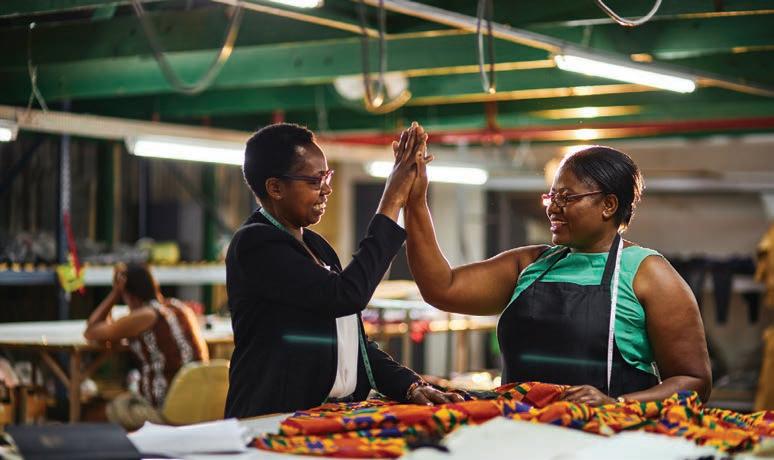


and the linked impairment risks, particularly those with limited or no track records.
While many large entities in South Africa have embraced BEE, BUSANI MOYO discovers that some face challenges managing enterprise and supplier development
One key element of black economic empowerment (BEE) is that big corporations must assist small start-up companies to grow and succeed. Undoubtedly, many large organisations in South Africa embrace the BEE spirit. The B-BBEE Commission, the organisation mediated to oversee, supervise and promote adherence to the B-BBEE Act 46 of 2013, reports that companies spent R26-billion on enterprise and supplier development (ESD) in the 2022 reporting period.
Notwithstanding the willingness of big corporations to participate in BEE initiatives that uplift small businesses through initiatives such as ESD, the B-BBEE Commission reports that many organisations are not involved, as is shown by the lack of reporting. What challenges do such organisations face when they attempt to help small start-ups and small businesses grow and succeed?
Nadia Rawjee, founding executive director at Uzenzele Holdings, knows all about the challenges big corporations face as they try to assist small businesses and start-ups. Her company specialises in helping entities raise capital from R10-million upwards and capacitating supplier development and localisation programmes to bridge the small and medium enterprises (SME) funding gap.
Rawjee believes that “the general financial ecosystem in South Africa is not optimally geared towards start-ups”, adding that measured entities often struggle to balance their ESD budgets with their own cash flow needs. She suggests supporting beneficiaries in leveraging third-party capital, including commercial, alternative and public sector funds.
In February 2023, the B-BBEE Commission issued a press release stating “the need of many measured entities for assistance to comply with B-BBEE legislation and correctly implement the ESD element”. Rawjee comments that “navigating compliance with the National Credit Regulation presents its challenges”.
However, a casual look at many South African banks’ websites, such as FNB and ABSA, shows they have structured ESD solutions through their Corporate and Investment Banking (CIB) divisions. These solutions provide preferential credit terms in a way that complies with national regulations, facilitating financial support to beneficiaries without compromising legal standards.
Another challenge big corporations have to grapple with is the affordability of beneficiaries
“THE GENERAL FINANCIAL ECOSYSTEM IN SOUTH AFRICA IS NOT OPTIMALLY GEARED TOWARDS START-UPS.” – NADIA RAWJEE
Concerning this, the B-BBEE Commission reports that “sometimes beneficiaries are unready to scale up their businesses due to a lack of strong financial management structures, sound business plans and governance structures, indicating a need for ESD strategies to provide additional support that smaller companies can operate competitively, productively, and sustainably.”
One of the biggest organisations in South Africa known to embrace BEE is Exxaro Resources Limited, which is mainly in the coal business. The company suggests that in implementing BEE, enterprise-wide supply chain risk can be mitigated “by lowering internal user transaction costs and supply side risk associated with security of supply and delivery lead times.” Exxaro adds: “We achieve this by actively investing in diversifying the quantum and quality of vendors located close to our business operations.”
Competing interests between procurement, finance, transformation teams and beneficiaries pose another significant challenge. Rawjee believes this challenge can be mitigated “by creating an environment of co-operation and mutual understanding, where measured entities can ensure ESD initiatives are effectively integrated into their broader business strategies, benefitting both the measured entities and the benefi ciaries they support.”


